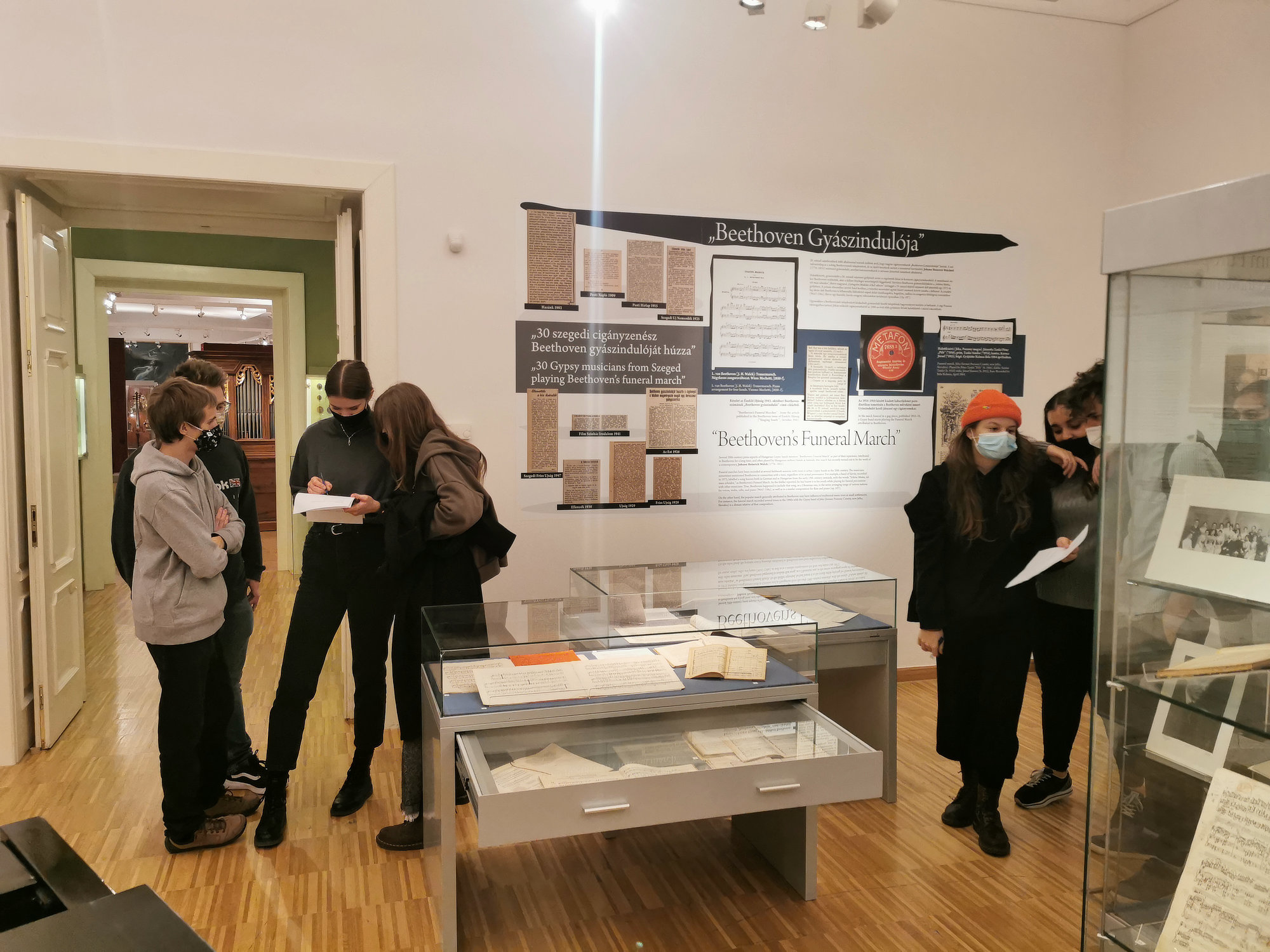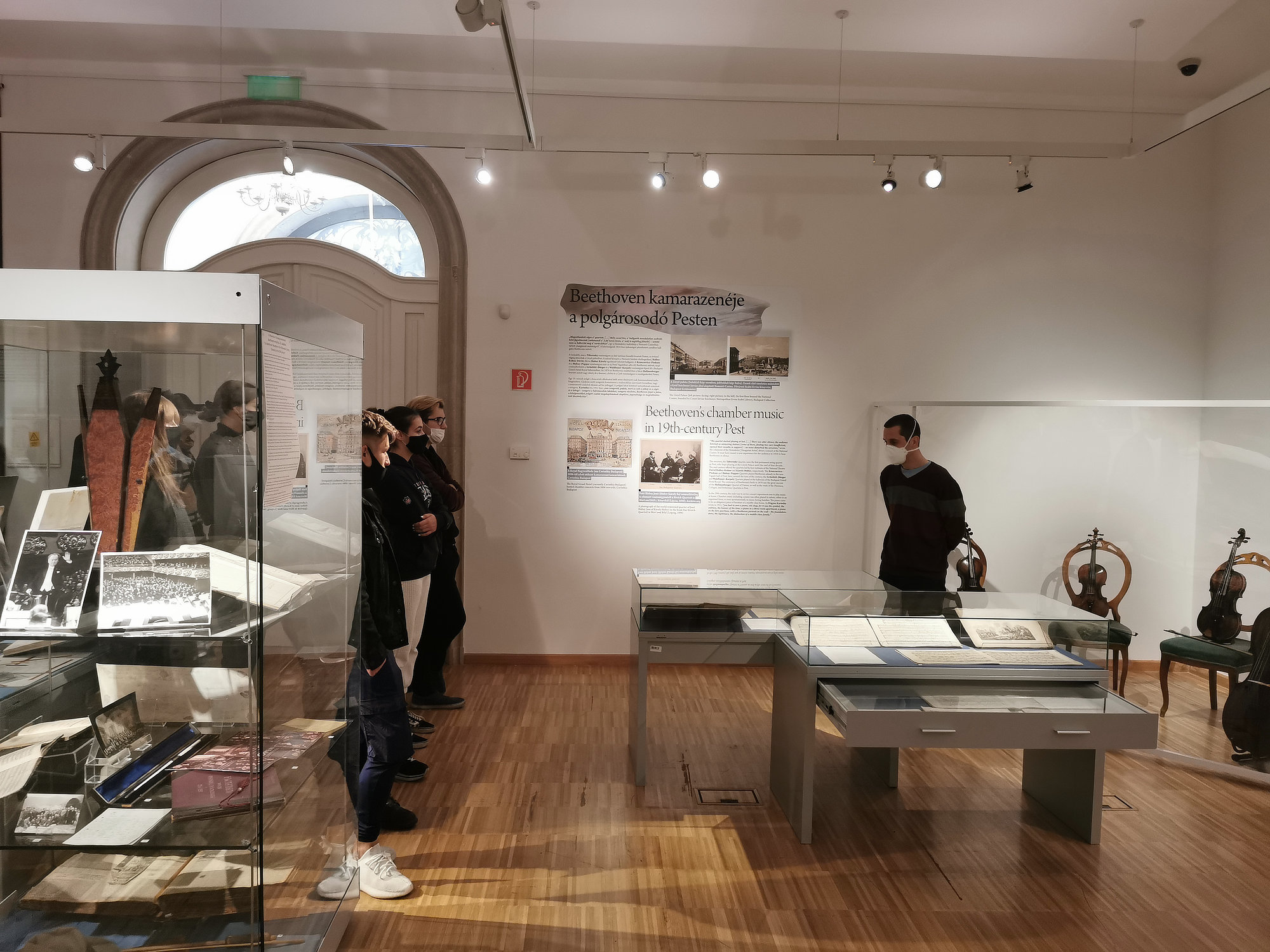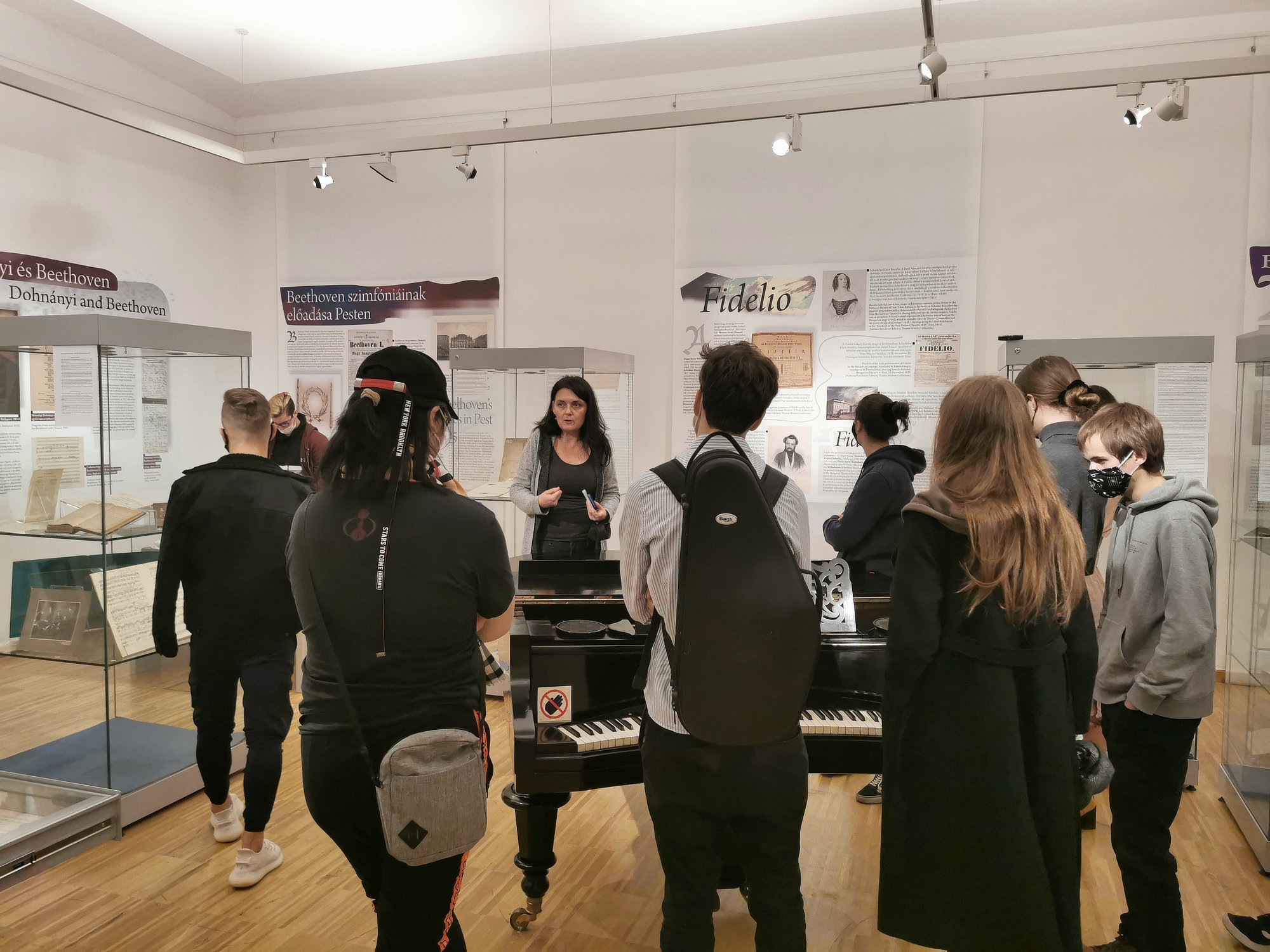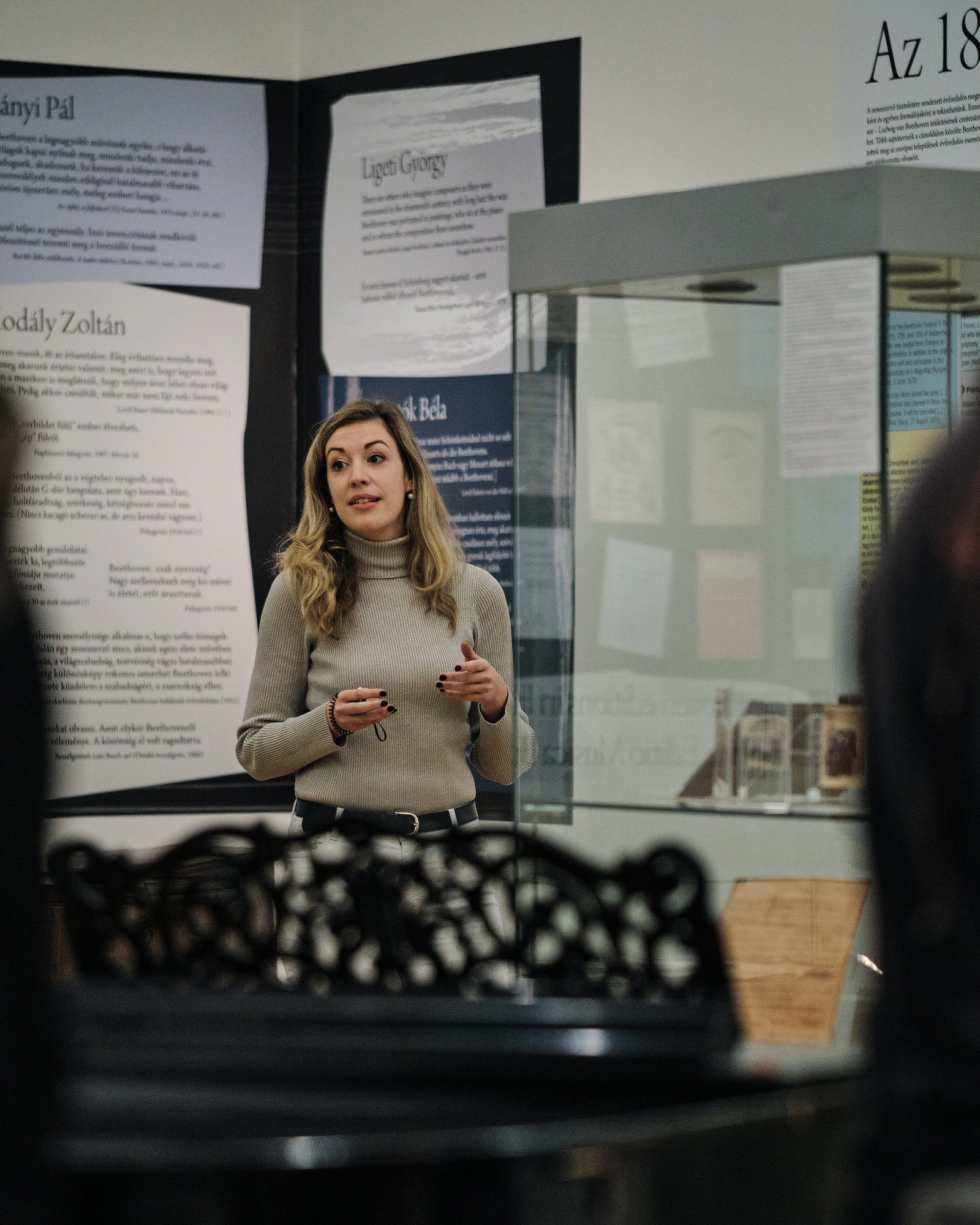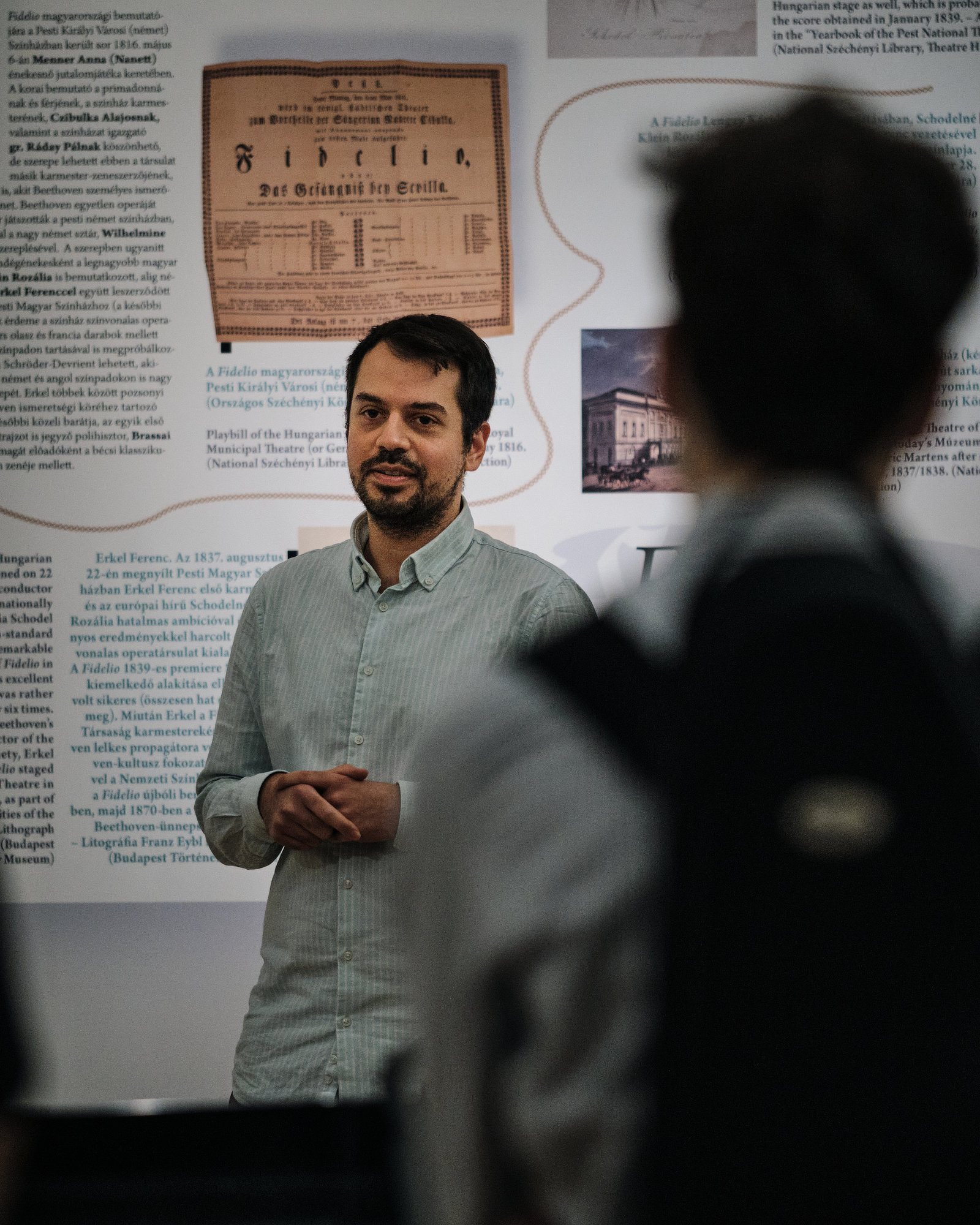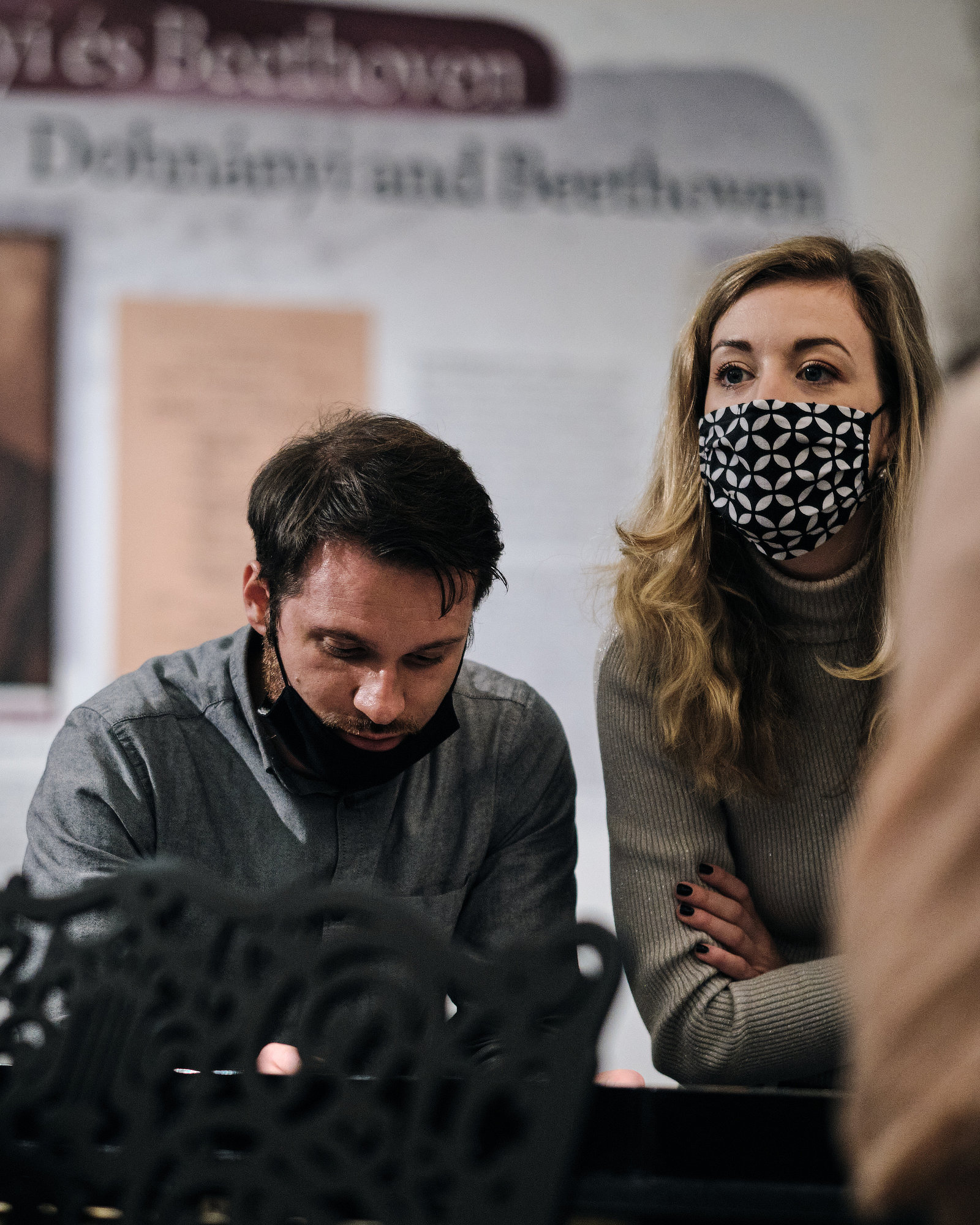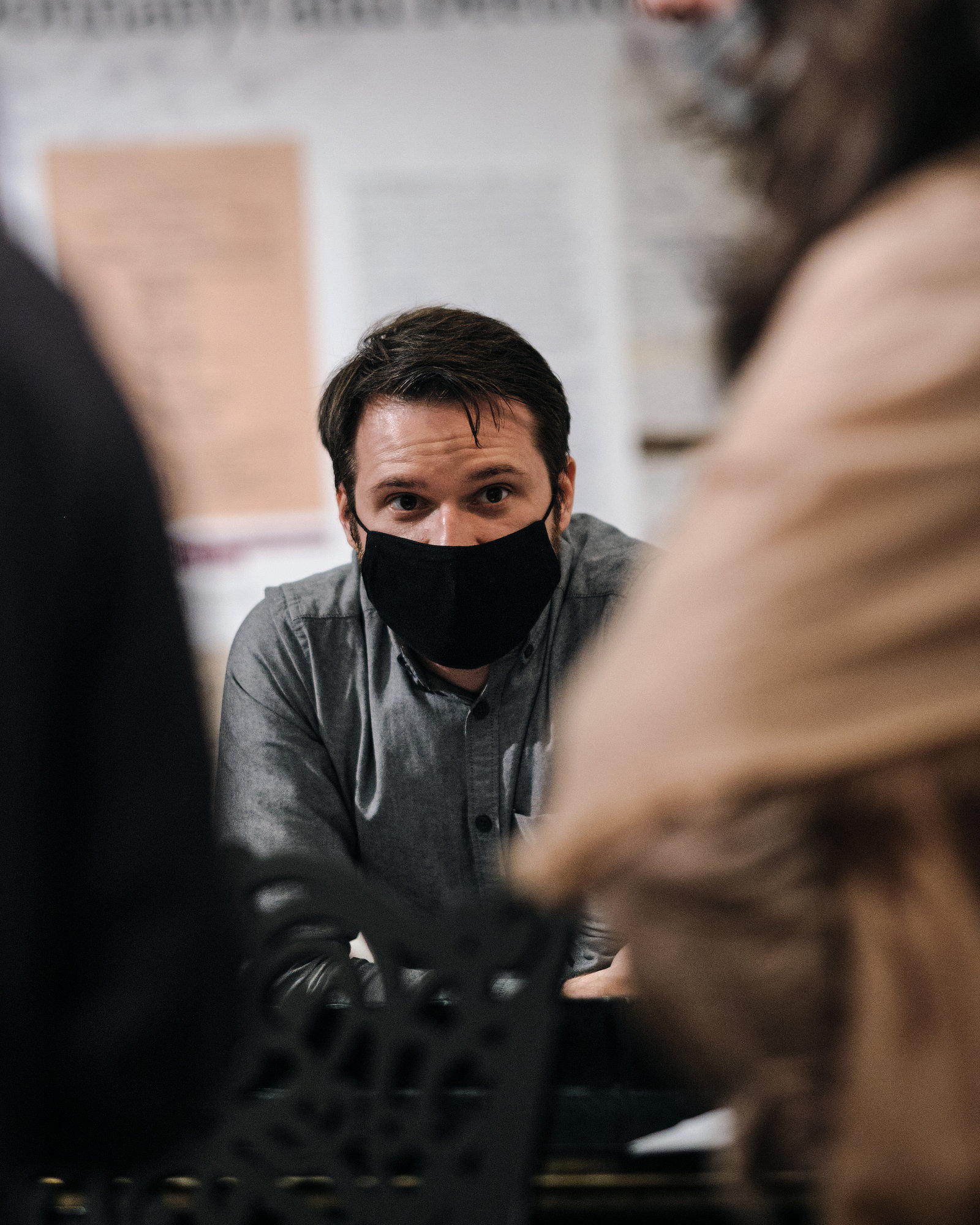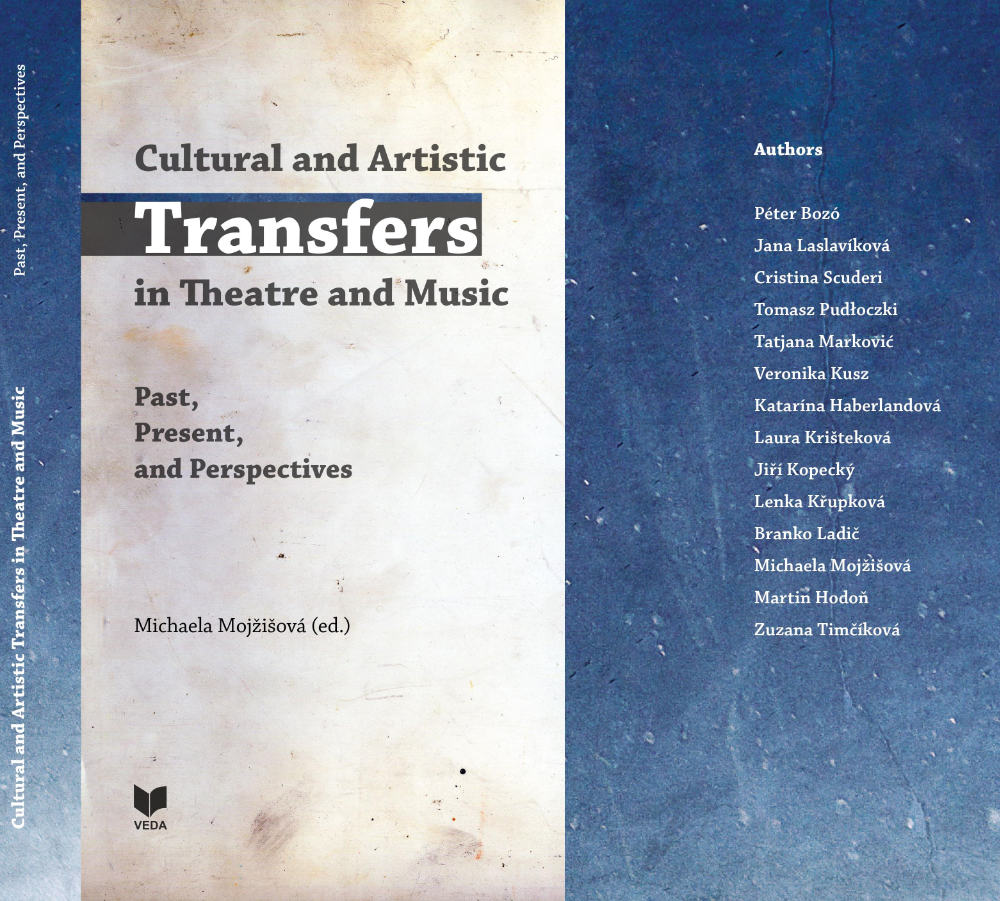Events in chronological order
Radio Interview with Jiří Kopecký
On the 9th of August 2022, doc. PhDr. Jiří Kopecký (Department of Musicology, Faculty of Arts, Palacký University Olomouc) gave an interview in the morning session of Proglas Radio. Moderated by Radka Rozkovcová, the Czech musicologist offered an insight into The Traveling of Opera Singers of the Olomouc Theatre during the 19th-century [Cesty operních pěvců olomouckého divadla v 19. století] by exploring the period’s theatre and opera industry, the position and task of a theatre director and opera singer, respectively the repertory and musical dramaturgy. As he states, “At that time, people did not have so many opportunities to express themselves about politics for example and of course censorship flourished. So oftentimes opera served as the only platform for freedom of speech.” As part of the Monarchy, the study concerning Olomouc Theatre is examined within the framework of a Visegrad Grant Project as well which, in collaboration with researchers from Slovakia, Poland and Hungary, aims to rebuild the network of the Musical Theatres in the reign of the Habsburg dynasty. The radio interview can be accessed through the audio archive on the following link: Dopoledne s Proglasem - Radio Proglas
Towards a Common Regional History of Our Nation Building Strategies. Traveling Directors, Musicians – International Conference
Institute for Musicology, RCH – Budapest, 26–28 May, 2022
Attempts to emancipate musical historiography of its national boundaries are still at an early stage. During the past decades such attempts in the V4 countries were still restricted by a number of nationally biased historiographies. The resulting national narratives have thus not included regional connections, nor the acknowledgment of the cultural and ethnic diversity of the region as a whole. In 2017, the Visegrad Grants research group, which organised this conference, launched a joint project with the aim of taking small steps toward the penetrability of the borders dividing the national histories of the Central and Eastern European region. In 2017, with the help of our research team, supported by the Visegrad Grant, we began summarizing our knowledge and resources of nineteenth-century musical theater through a regional bibliography and a source database, in order to obtain an overall view of this subject. Our current project, which concluded with this conference, was focused on the migration of musicians and the repertoire of singers and conductors appearing in different parts of the region, with the purpose of revealing the network operating throughout the theatrical practice in the service of nation-building as well as the common features resulting from its regional embeddedness. The exploration of the history of our national theatres gains its true significance by taking into account the regional context, both from a macro- and micro-historical perspective.
Most papers of this conference dealed with the music history of the 19th and early 20th centuries. This period was in the regions history of music the era of cultural nation-building. Although it is also true that the cultural nation-building was not the only process taking place in these decades: one should think of the institutionalization of the civic musical institutions, of the public sphere connected to music, and the transformations in the urban music life. In essence, these have been the driving forces of the gradual transformation of the everyday music life – with or without national aspirations. Moreover, we must not forget that the cities of the region (Hungary, but also those of today’s Czech Republic, Poland, Slovakia, Croatia, Serbia, Romania and Ukraine – in these two days we had lectures on all these place – at that time were almost without exception multilingual and multi-ethnic localities. Having said that, it is not difficult to recognize the importance of such research projects that go beyond national historiography. Regional co-operation is particularly important on topics such as the 19th-century musical theater in the current Visegrad countries.
The majority of the attendees in this conference were participants in our Visegrad Grant project. However, we invited guest speaker at our conference on regional versus national music history/musical historiography, focused on the nineteenth and early-twentieth centuries. The conference was held in a hybrid format. Partly with personal participation and partly online. As a result, we were able to invite a number of prominent speakers at European level to the conference who would not have been able to attend due to lack of time and support. The speakers of the conference (21 speakers in total) represented the highest standards, all of them are leading researchers and teachers from research and higher education institutions in the region. At the same time, the young generation was also present among the participants from Leipzig and Budapest. (For a biography of the program and participants, see the attached program booklet.)
This conference was actually planned as a workshop conference. In addition to regular conference presentations, we had also 20 to 25 minutes-long book and project presentations and a moderated discussion about the latest books and projects. Our goal with these formats was to turn to each other’s activity with a sincere curiosity, to learn about our research results as much as possible – especially those researches that are not accessible to everyone due to linguistic limitations.
The unconcealed goal of this conference was to expand our research team and to launch a large-scale European project destined for conducting research into the process of cultural nation-building in a regional context. By eliminating the boundaries of national historiography, our current and planned joints scientific projects may provide insights into the regional image of nation-building, thus greatly facilitating the understanding of national and/or local processes in a region where the simultaneity of multiple cultural nation-building strategies can be observed in the multiethnic cities or even within the same institution. However, these strategies must be examined and interpreted not only separately but also together, in interaction with each other.
An important goal of our conference was to discuss the form and topic of a possible future joint EU grant application, all speakers at the conference had the possibility to attend a roundtable discussion on the topic, where every participant of our conference took an active part in this common thinking. I truly hope that with this Visegrad Grant and with all our previous professional collaborations, we have managed by now to establish and deepen our professional relations, and that we will find the right form and content, the right framework and topics along, which we can initiate together a major research project.
You can download the program booklet, the invitation, and the poster here.
You can download the concert invitation (EN, HU), the poster (EN, HU) and the program (EN, HU) here.
Kim Katalin
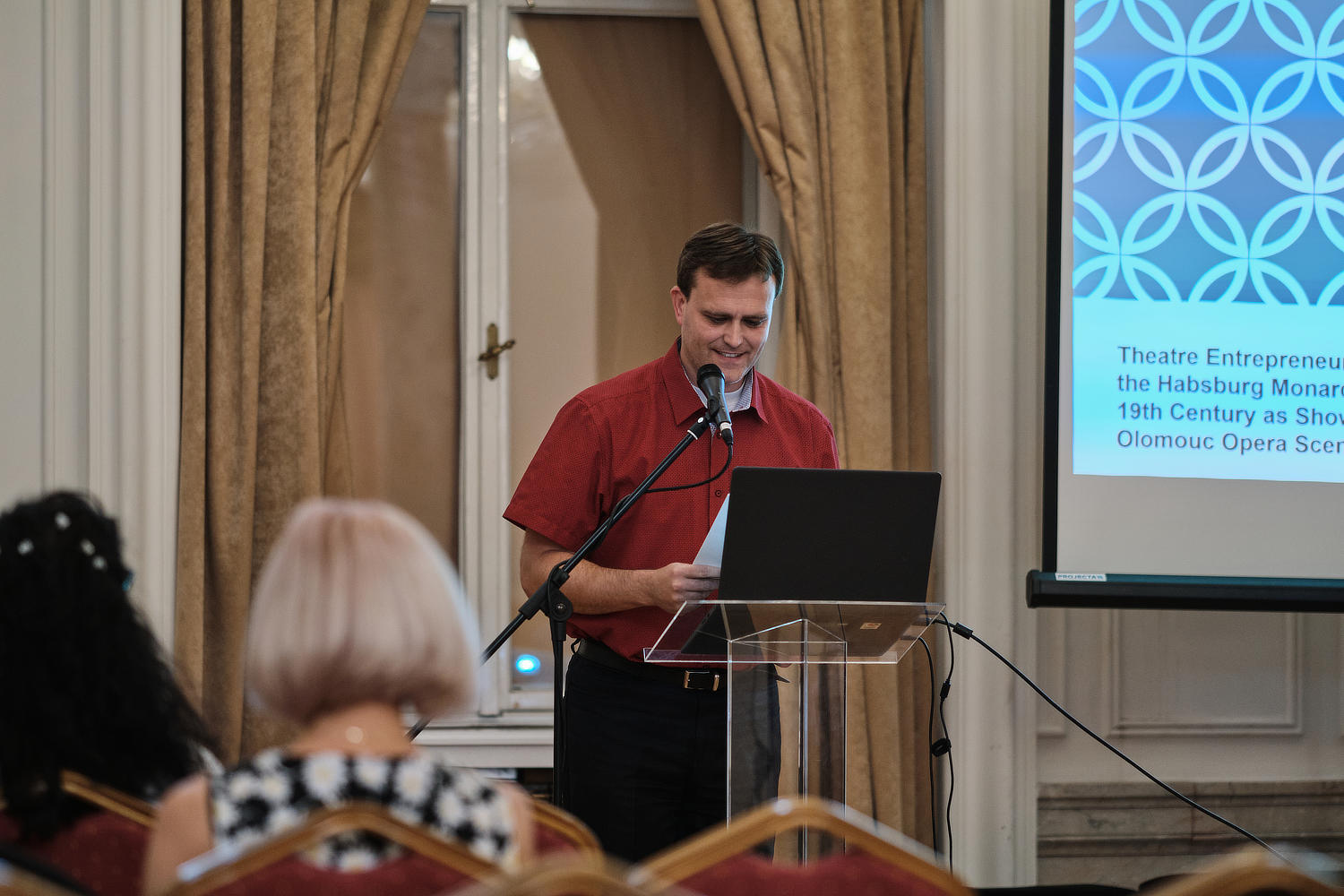
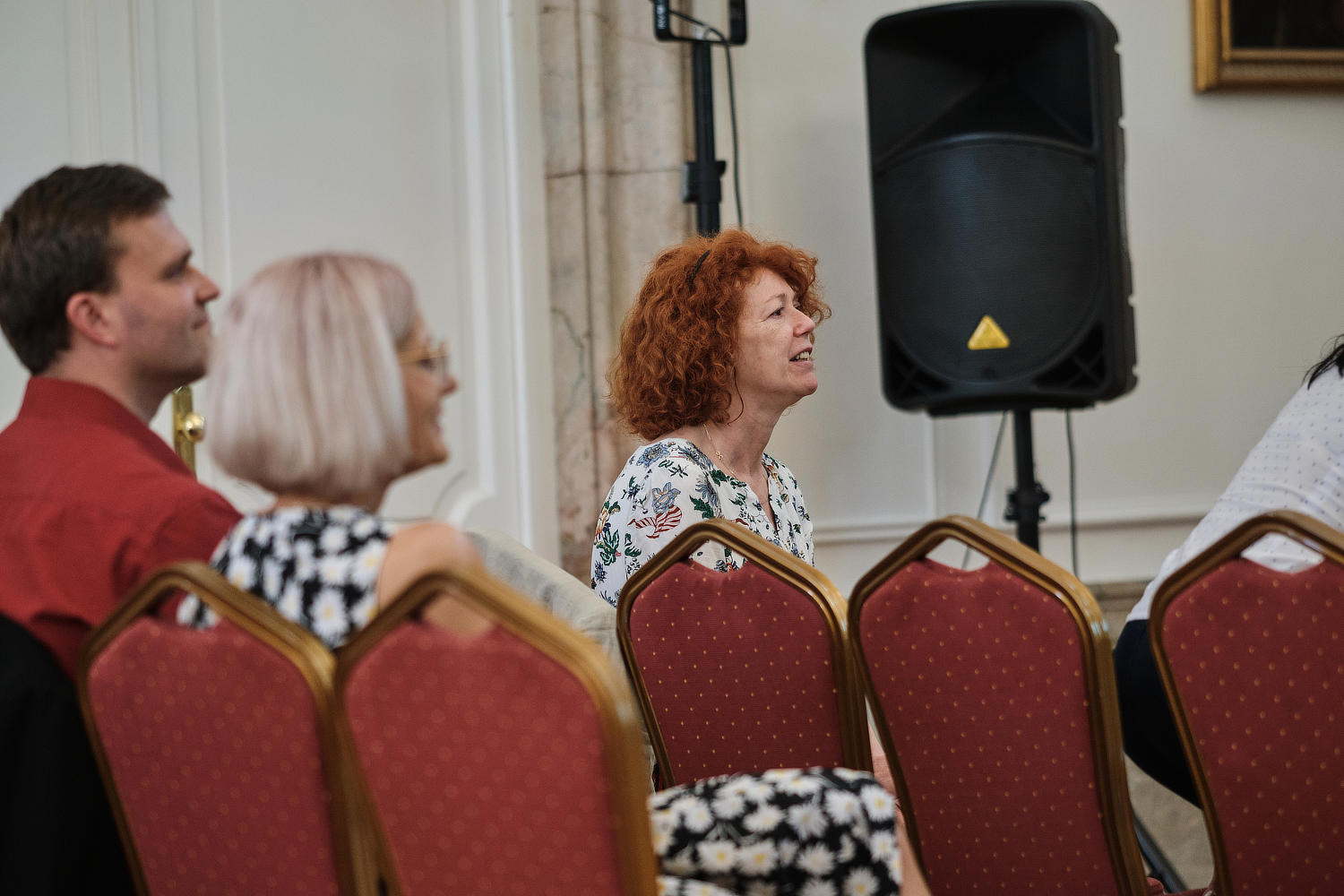
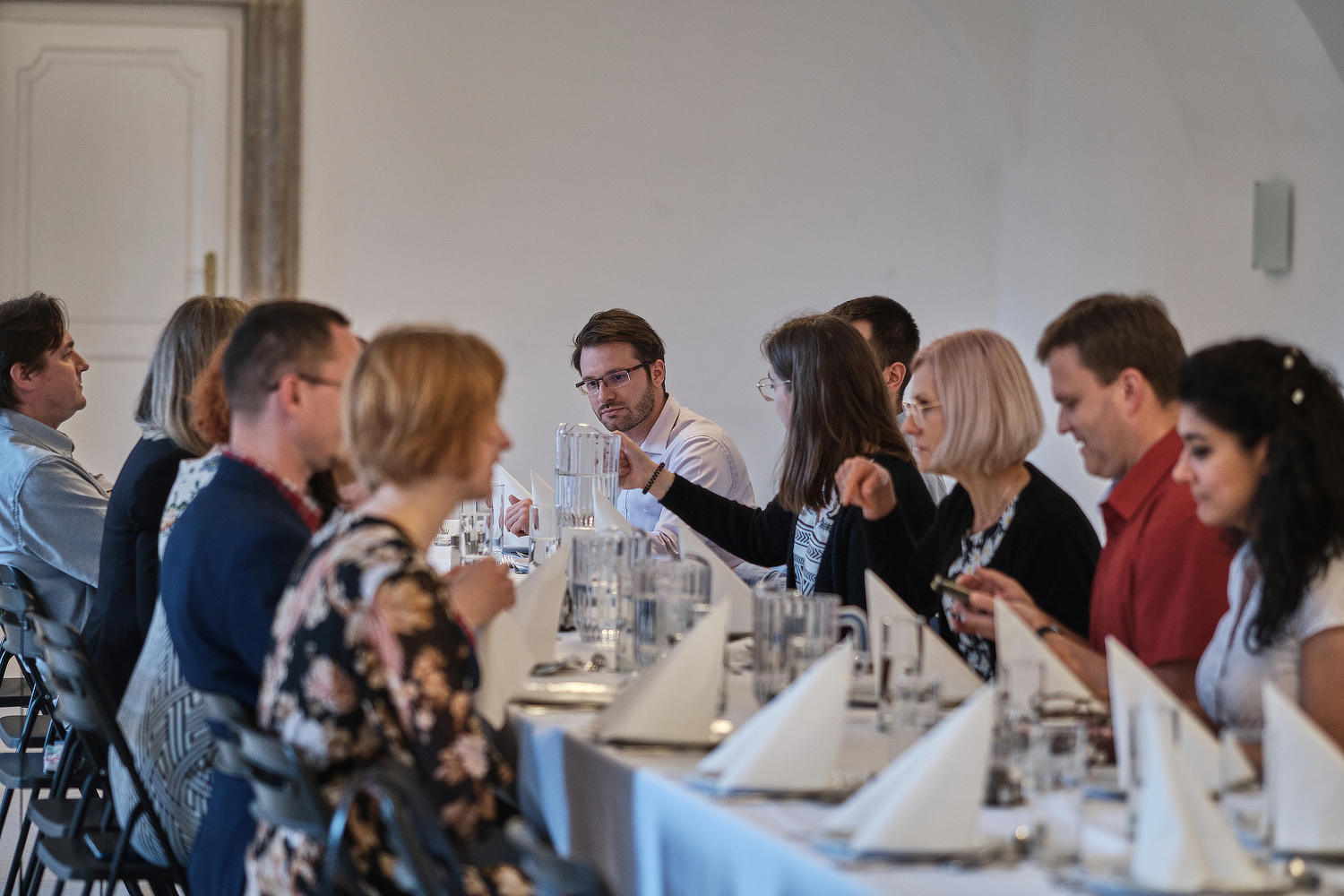
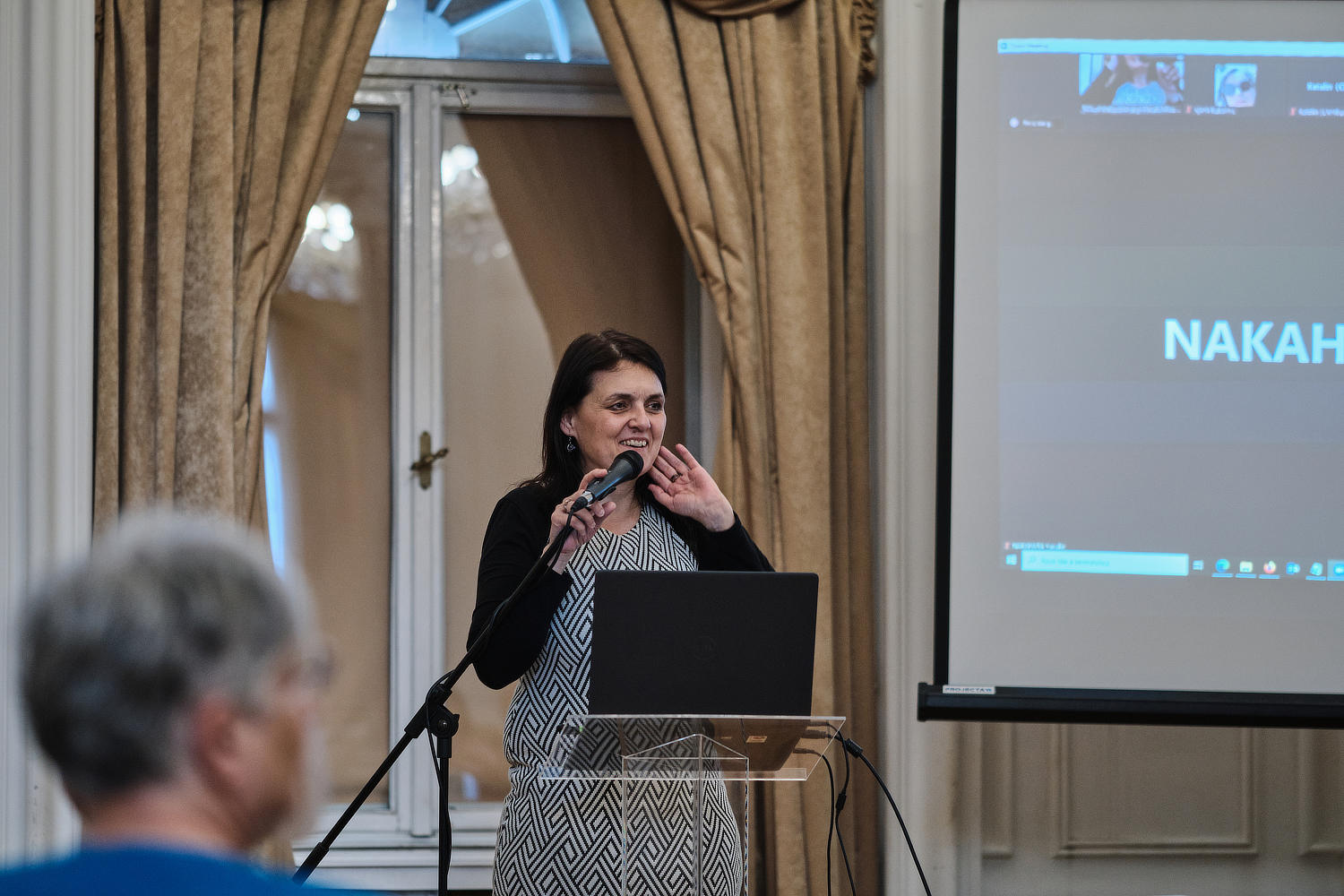
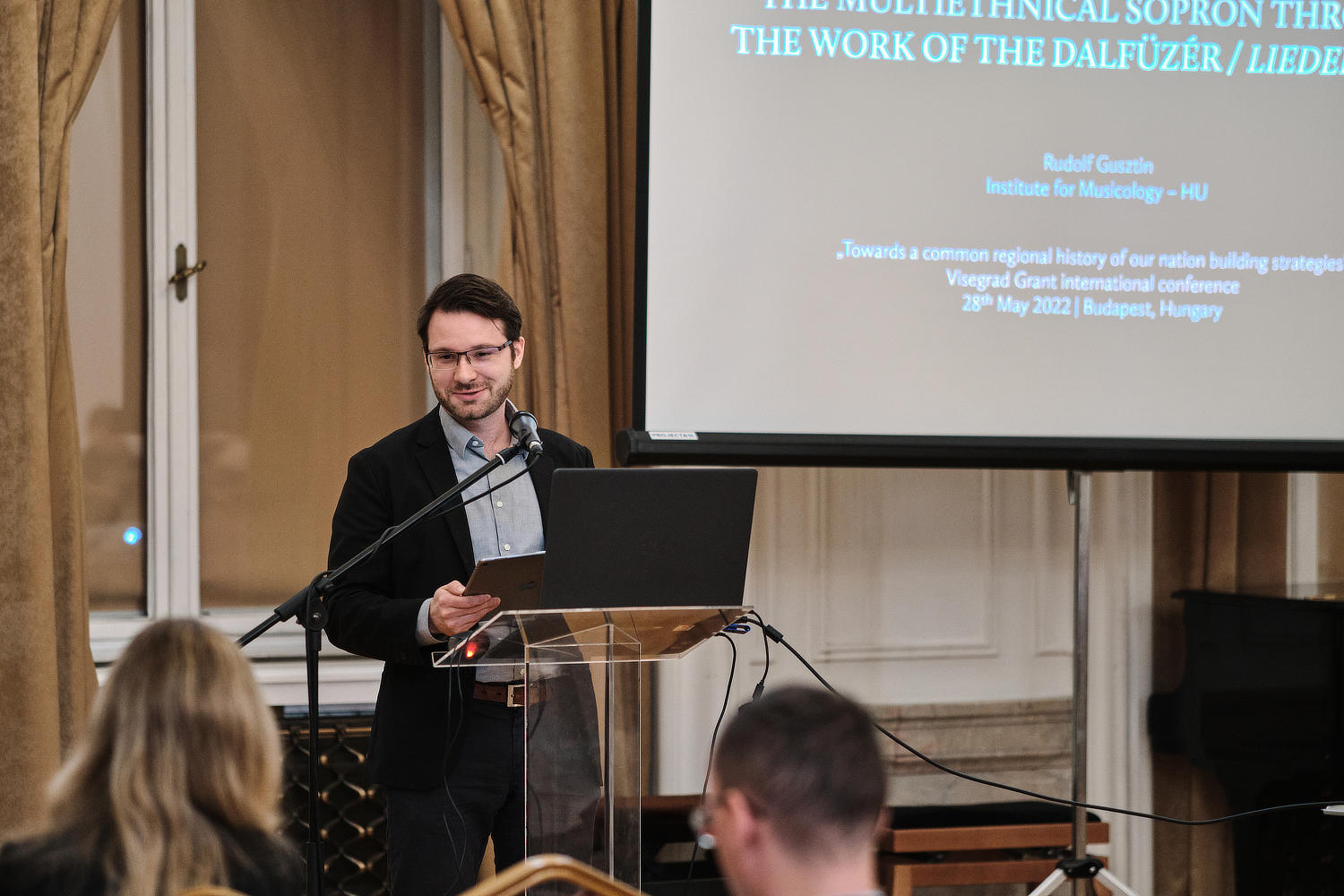
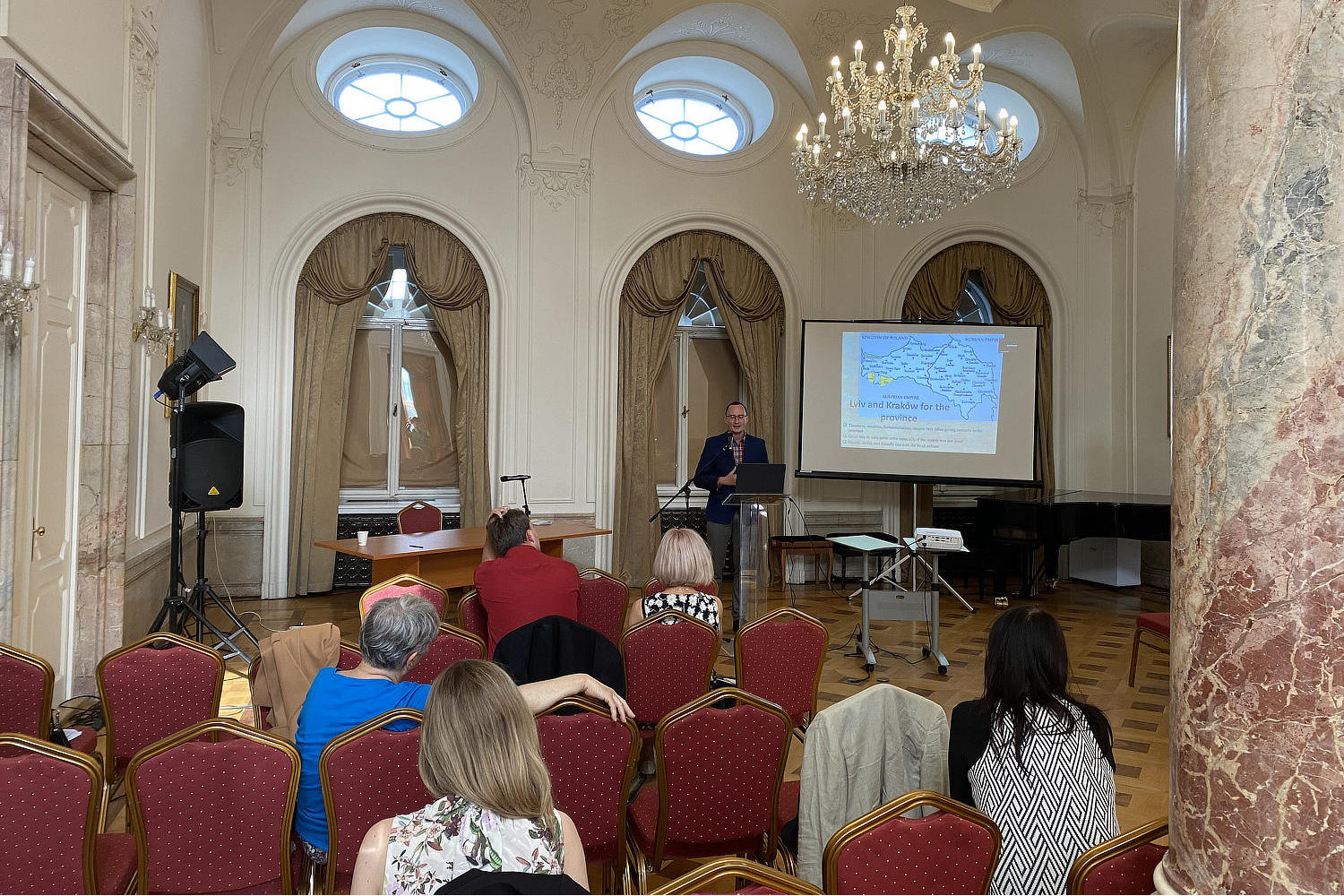
This conference was organized by the Institute for Musicology in Budapest in connection with the Institute of History of the Slovak Academy of Sciences in Bratislava, the Institute of History of the Jagiellonian University in Krakow, and the Palacký University Olomouc. Conference organiser: Katalin Kim, conference secretary Lili Veronika Békéssy, design of the media materials for the conference (website, poster, invitation, program book) Zsolt Vizinger, technical support Rudolf Gusztin. Translation and thousands of further minor issues were taken care by our colleagues: Pál Horváth, István Csaba Németh, Mirjam Winter, and our new junior staff members: Sára Aksza Grosz, Beáta Simény, Máté Gergely and Szabolcs Illés, as well Erzsébet Bognár Csorbáné and Dr. Gyula Szöllősy.
Presentation of the Project and archival research Wien
23-25 May, 2022, ÖNB Heldenplatz, Musiksammlung; Universität für Musik und darstellende Kunst Wien
The archival research in Vienna, Austria was of primary importance in our project. The younger generation of researchers had to get to know the source material there, especially the research possibilities and methods of Österreichische Nationalbibliothek Heldenplatz and Musiksammlung.
The Hungarian and Slovak members of our research group and the guest lecturers of the project (Tatjana Markovič, Vienna, Institute for Art and Music History of the Austrian Academy of Sciences) processed archival research in Vienna with a public lecture presenting this project at the University of Music and Performing Arts, Vienna. The educational lecture introducing the project and its subtopics was held by Katalin Kim, Jana Laslavíková, Tatjana Marković and Tomasz Pudłocki. The event took place at the former university on 25 May, 2022, from 6 P.M.
Lecture recital in Krakow, Consulate General of Hungary
The third lecture recital of the Visegrad Grant project entitled Towards a common regional history of our nation building strategies. Traveling directors, musicians took place at the Consulate General of Hungary in Krakow, on May 16, 2022 at 5 P.M. The concert was opened by Mr. Tibor Gerencsér Consul General, with consuls, professors and university students in the audience.
The repertoire of the lecture recital was performed by the Liszt Ferenc Prize winner soprano Ingrid Kertesi, and her current student in the Liszt Academy Budapest, the soprano singer Júlia Mária Kovács, with the participation of conductor Gergely Kaposi on the piano.
The concert was complemented by short introductory lectures held by experts explaining the selected repertoire illustrating the musical theatrical traditions of each V4 nation. For the lecture recital, the experts (Jana Laslavíková, Tomasz Pudłocki, Kim Katalin, Lenka Křupková and Jiří Kopecký) selected arias that were the most characteristic representatives of the nation-building traditions of each nation under study in some of the countries' musical theaters. This time, instead of Jana Laslavíková, Tomasz Pudłocki, instead of Katalin Kim, Lili Veronika Békéssy PhD student, and instead of Lenka Křupková and Jiří Kopecký, Ali Yansori PhD student presented the lectures.
The consulate held a reception after the lecture recital, too, giving space to informal talks regarding nurturing international nteworks and possible future collaborations.
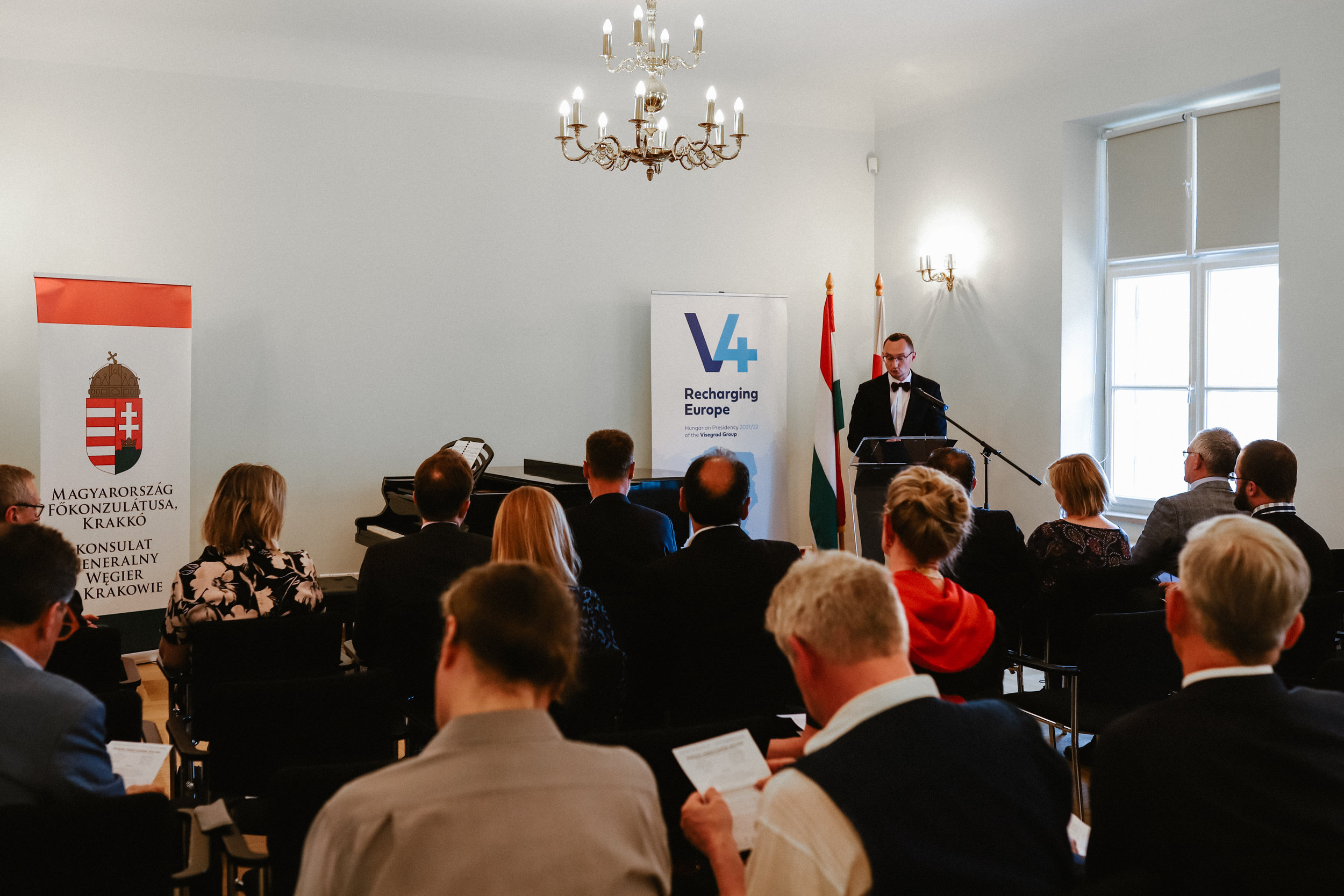
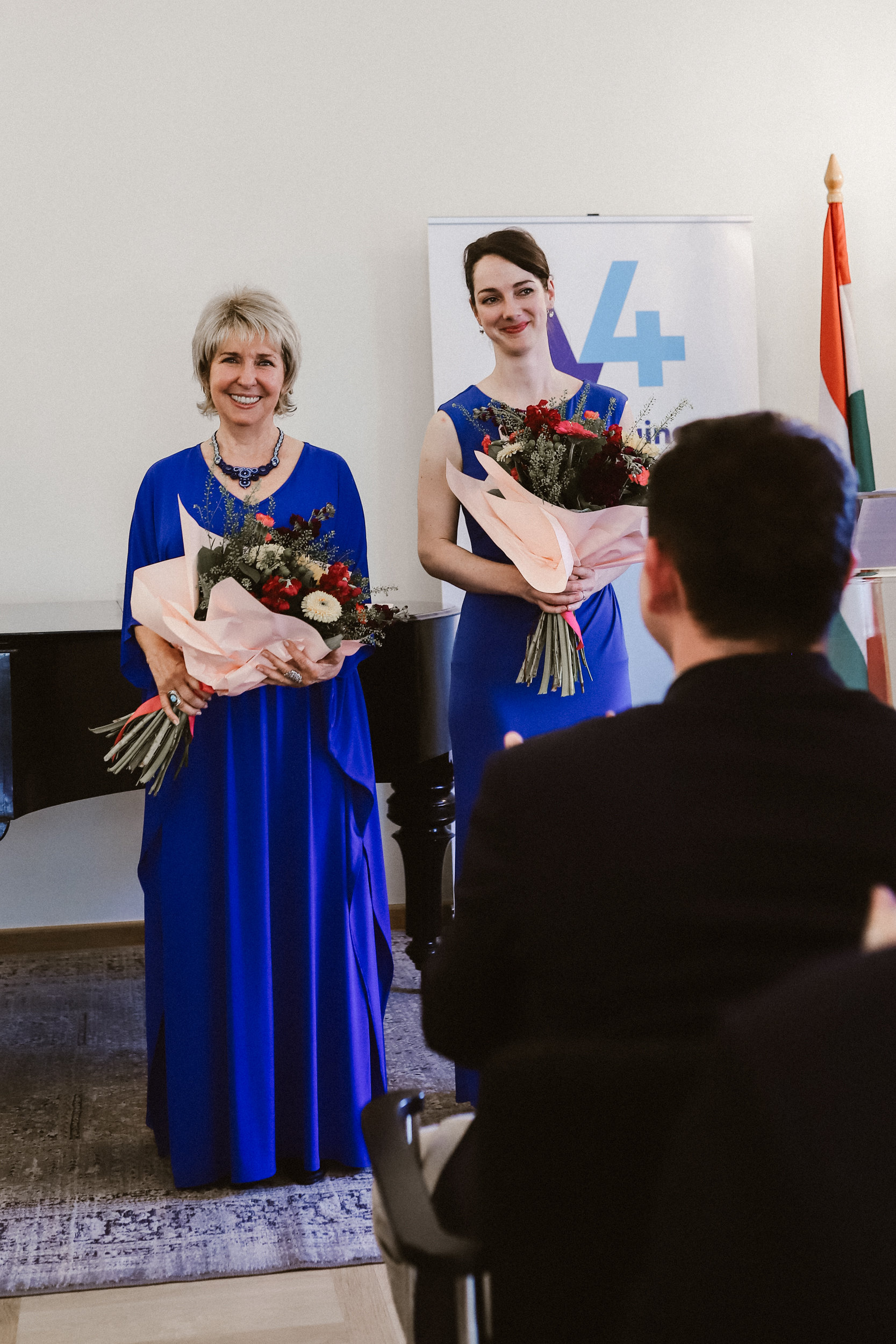
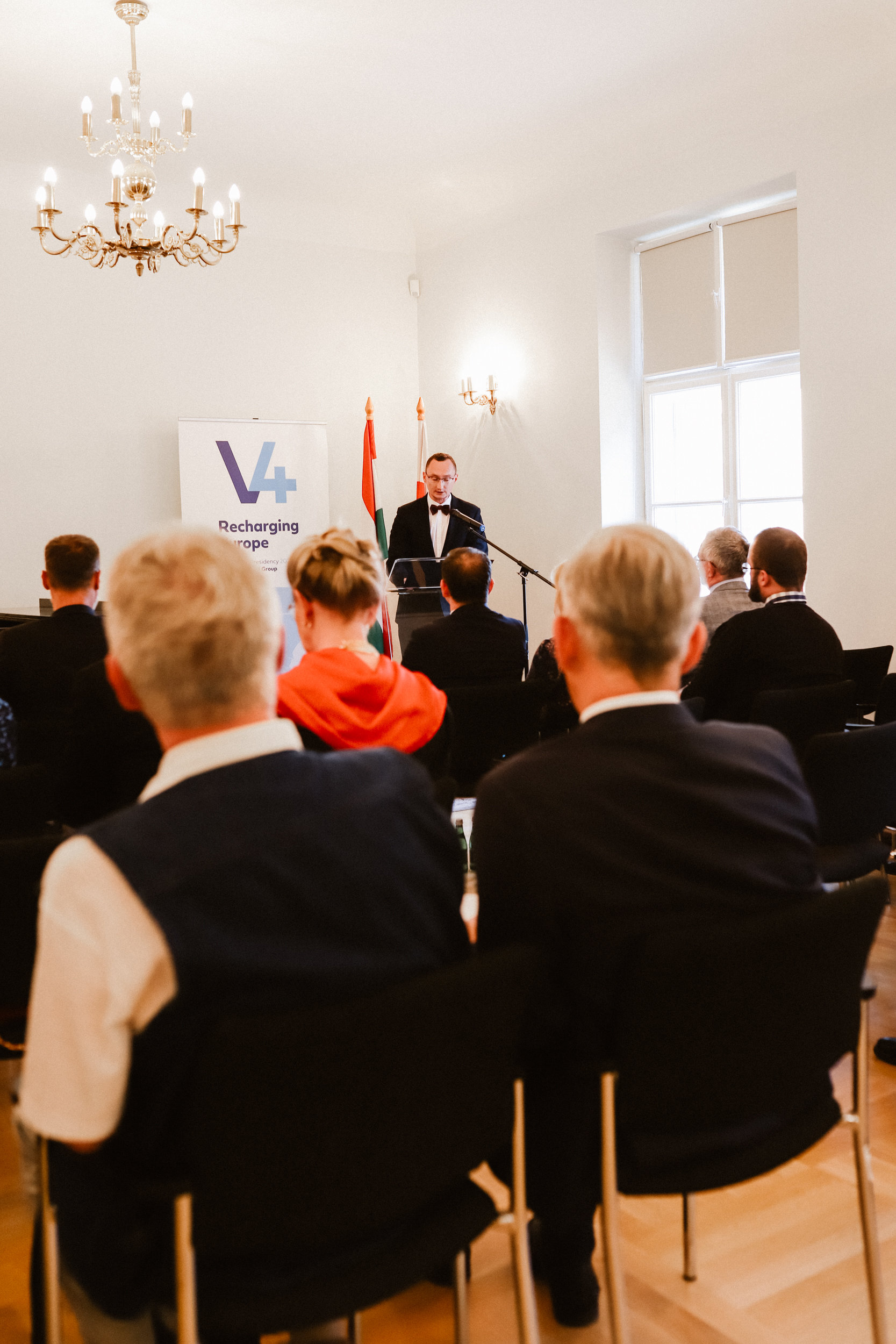
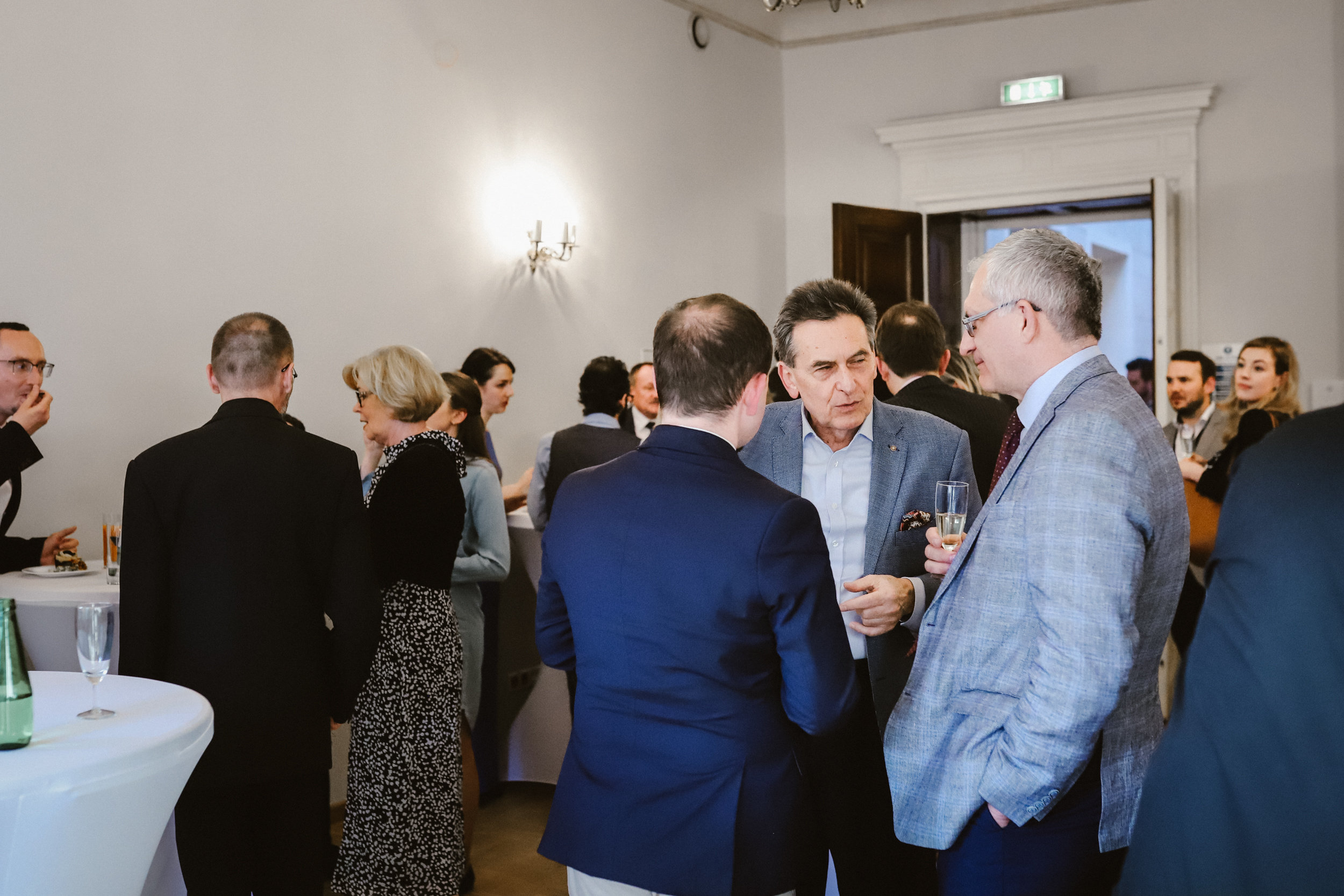
Photos: Krakko.mfa.gov.hu
Rudolf Gusztin's lecture in the congregation of the Hungarian Evangelical Brotherhood in Szeged
On May 13, 2022, within the framework of the Visegrad Grant project "Towards a common regional history of our nation building strategies. Traveling directors, musicians", Rudolf Gusztin from our department gave another lecture Music and Politics. Case studies from the 19th and 20th century Hungarian music history at the congregation of the Hungarian Evangelical Brotherhood in Szeged. Participants heard about both the 19th century choral movement and the Kádár era's relationship with jazz during the hour-long lecture.
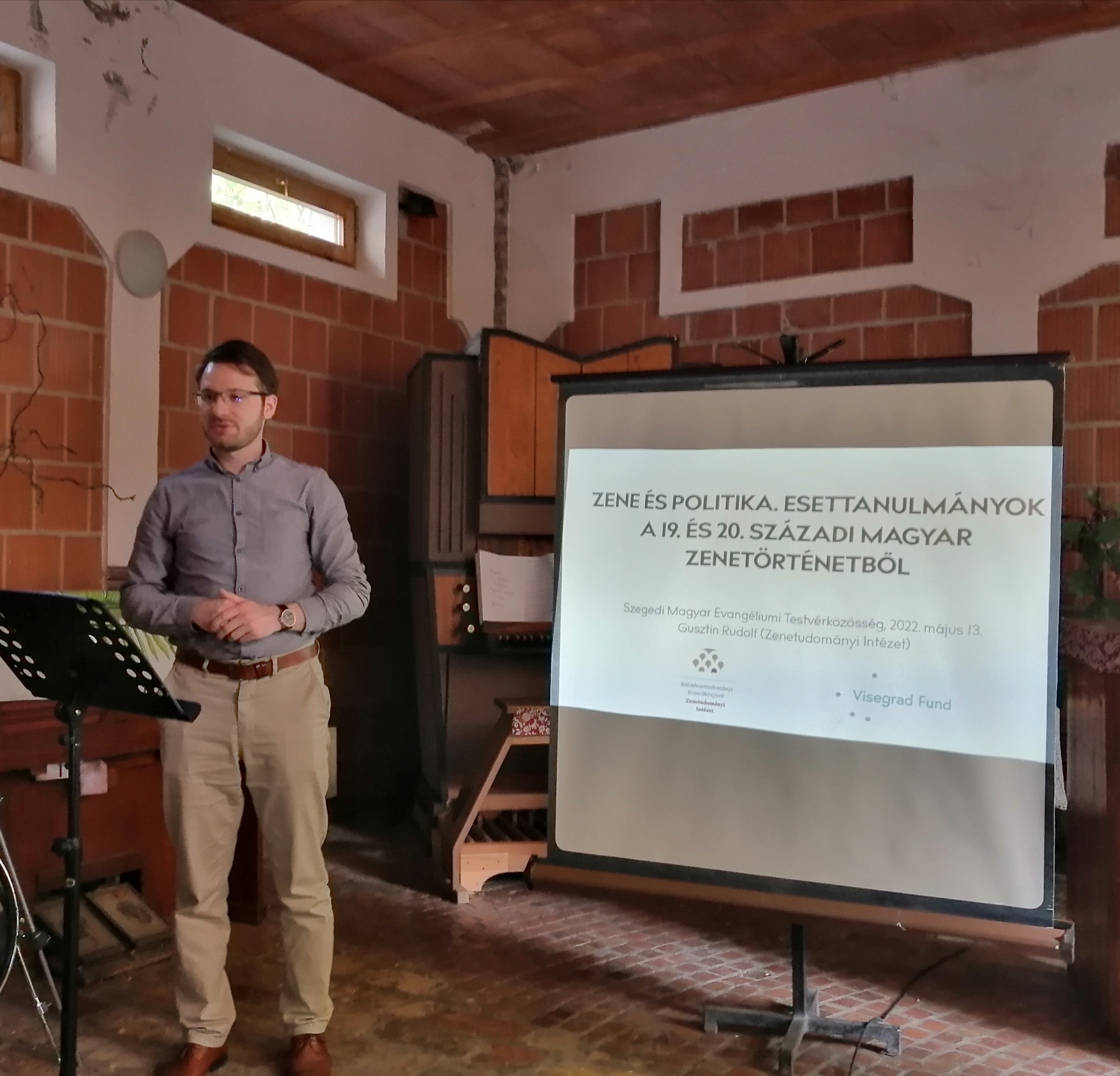
Two lectures by Pál Horváth
On May 12, 2022, a concert was organized in the Ötpacsirta Szalon of The Metropolitan Ervin Szabó Library Music Collection in honour of Franz Doppler, who was born 200 years ago in 2021.
Pál Horváth gave a lecture at this concert within the framework of the Visegrad Grant project "Towards a common regional history of our nation building strategies. Traveling directors, musicians".
Franz Doppler was an important figure in the musical life of 19th-century Pest. He worked for two decades as a conductor, composer and flutist at the Pest National Theatre, before becoming a ballet conductor in Vienna.
On May 13, 2022, a concert was organized in the Weiner Hall of the Leó Weiner Catholic School of Music and Musical Arts Secondary School in honour of Franz Doppler, who was born 200 years ago in 2021.
Pál Horváth gave a lecture at this concert within the framework of the Visegrad Grant project "Towards a common regional history of our nation building strategies. Traveling directors, musicians".
Franz Doppler was an important figure in the musical life of 19th-century Pest. He worked for two decades as a conductor, composer and flutist at the Pest National Theatre, before becoming a ballet conductor in Vienna.
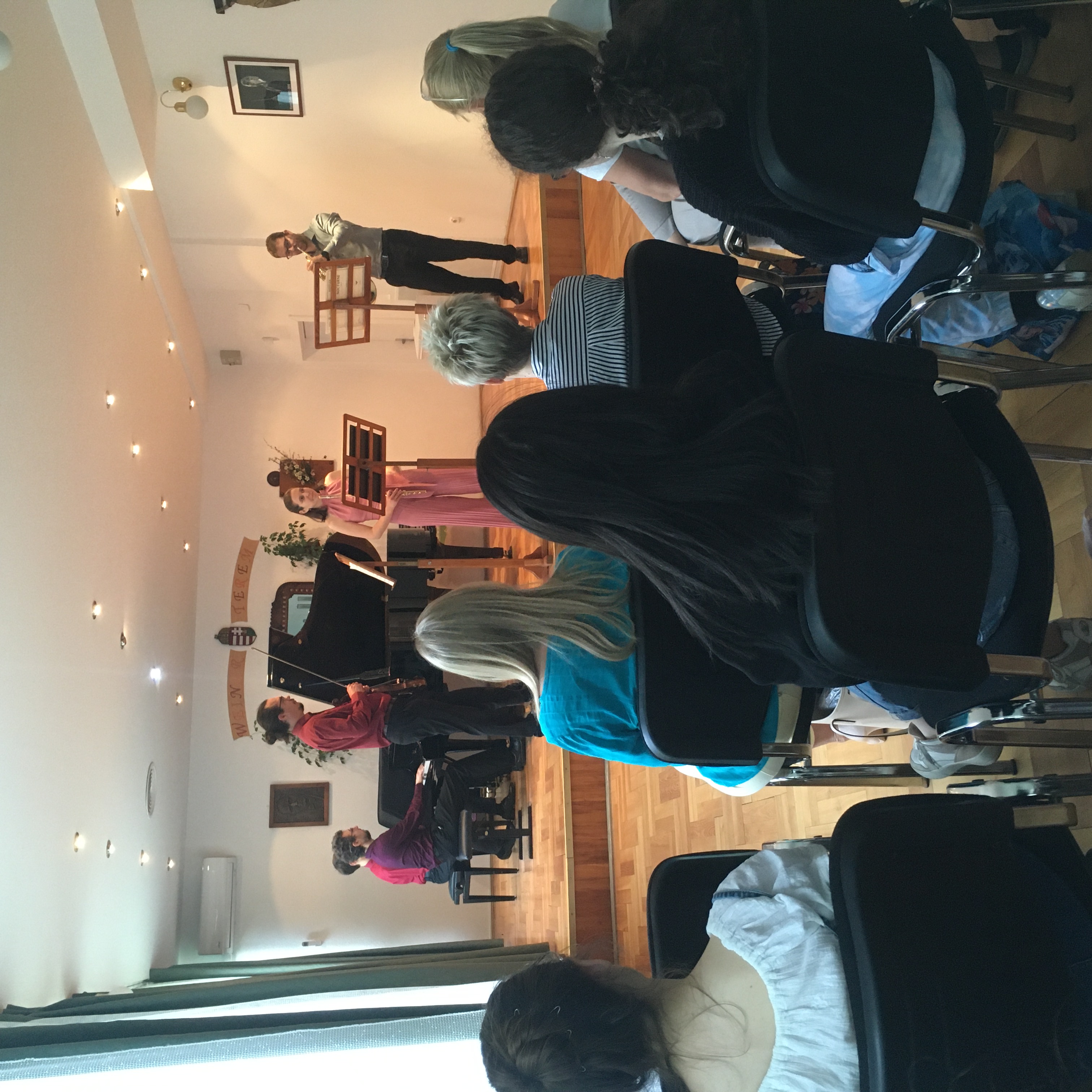
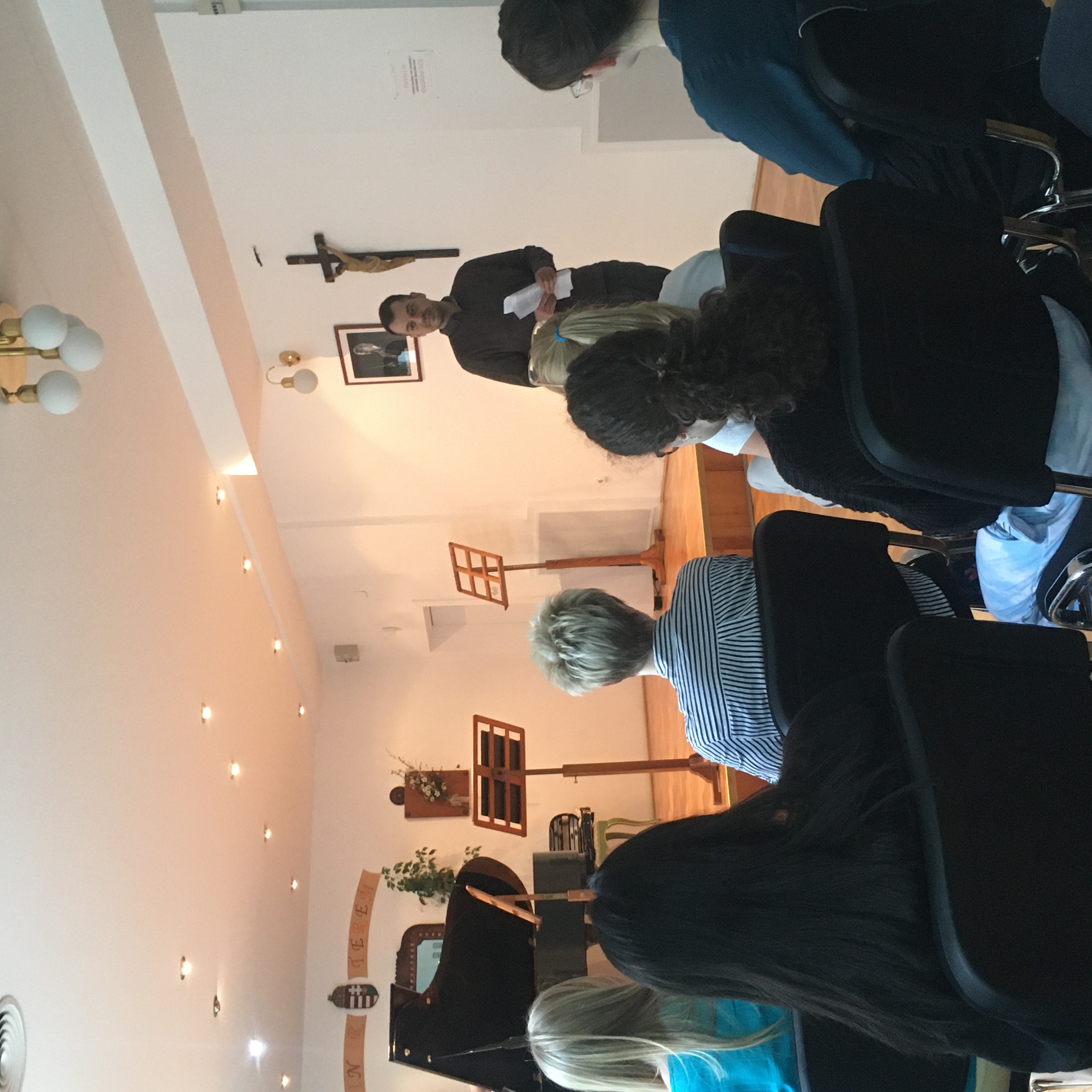
Lecture by Gusztin Rudolf
On May 5, 2022, within the framework of the Visegrad Grant project "Towards a common regional history of our nation building strategies. Traveling directors, musicians", Rudolf Gusztin, a member of our department, presented a lecture "Music and Politics. Case studies from the 19th and 20th century Hungarian music history". Our colleague gave the lecture to students of the Music Department of the University of Debrecen. The topic covered both the 19th century choral movement and the Kádár era's relationship with jazz.
Although all political regimes have the possibility to use music, it is a particularly important tool for authoritarian and dictatorial regimes, which emphasise the ideological re-education of the people. Censorship, police surveillance, subpoenas - key words that are characteristic of both the 19th and 20th century authoritarian periods in Hungary. The relationship between power and culture will be explored through two case studies, the Hungarian choral movement in the 19th century and the early history of jazz in Hungary in the 20th century.
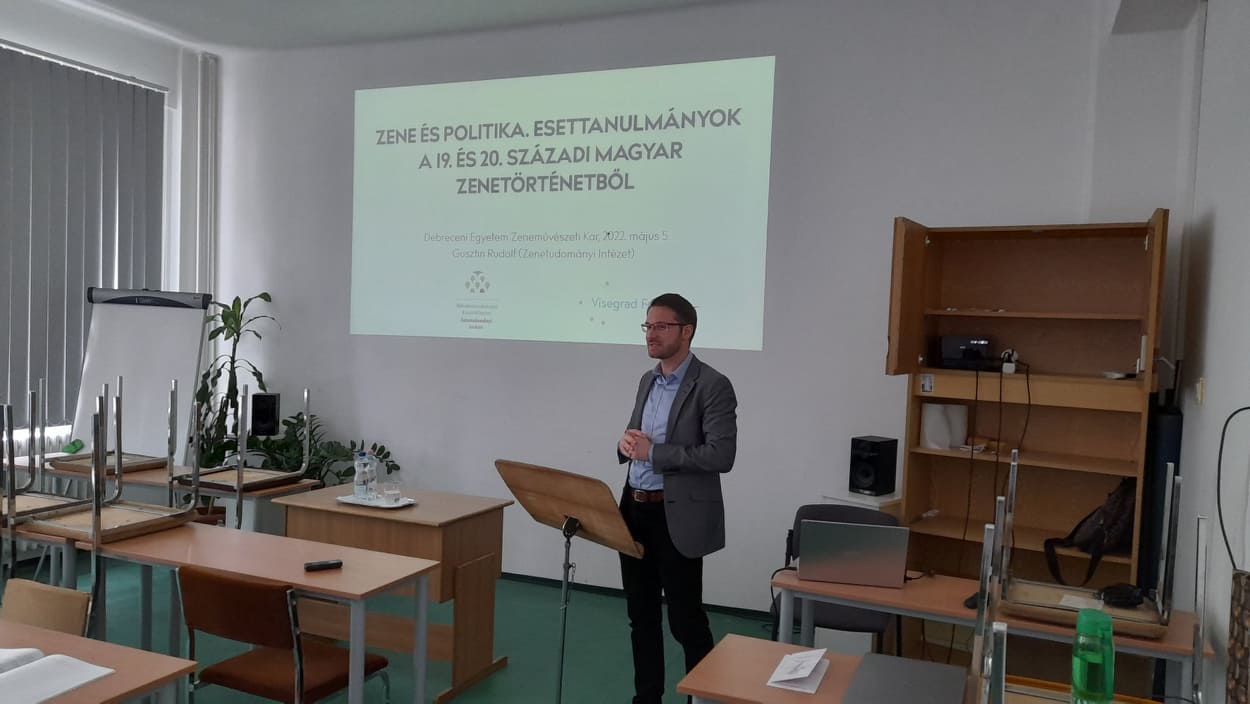
Lecture recital and book presentation in Bratislava, in the Slovak National Theatre
The second lecture recital of the Visegrad Grant project took place on May 4, 2022 at 5 pm in the Opera Chamber of the Slovak National Theater in Bratislava. In addition to the lecture recital, a volume presentation was held, too, in line with the theme of the project and in which several participants of the Grant had a publication, entitled Cultural and Artistic Transfers in Theater and Music: Past, Present, and Perspectives (Vydavateľstvo VEDA in ÚDFV CVU SAV, 2021).
The repertoire of the lecture recital was performed by the Liszt Ferenc Prize winner soprano Ingrid Kertesi, and her current student in the Liszt Academy Budapest, the soprano singer Júlia Mária Kovács, with the participation of conductor Gergely Kaposi on the piano. The recital was complemented by the soloist mezzo-soprano of the Slovak National Theater Katarína Flórová with the participation by Branko Ladič on the piano.
For the lecture recital, the experts (Jana Laslavíková, Tomasz Pudłocki, Kim Katalin, Lenka Křupková and Jiří Kopecký) selected arias that were the most characteristic representatives of the nation-building traditions of each nation under study in some of the countries’ musical theaters. The text by Tomasz Pudłocki and Katalin Kim was read by Lili Veronika Békéssy, and the text by Lenka Křupková and Jiří Kopecký was read by Jana Magdaléna Májeková PhD students also participating in the project.
The president of the Slovak Academy of Sciences and the Director of the Slovak National Theater were also members of the audience.
The event on the website of the Slovak National Theater: https://snd.sk/en/performance/14012/divadelni-riaditelia-a-hudobnici-na-cestach-1870-1920/2022-05-04/17-00
The report of the Slovak Academy of Sciences can be read here: https://www.sav.sk/?lang=sk&doc=services-news&source_no=20&news_no=10347
The program notes can be download here.
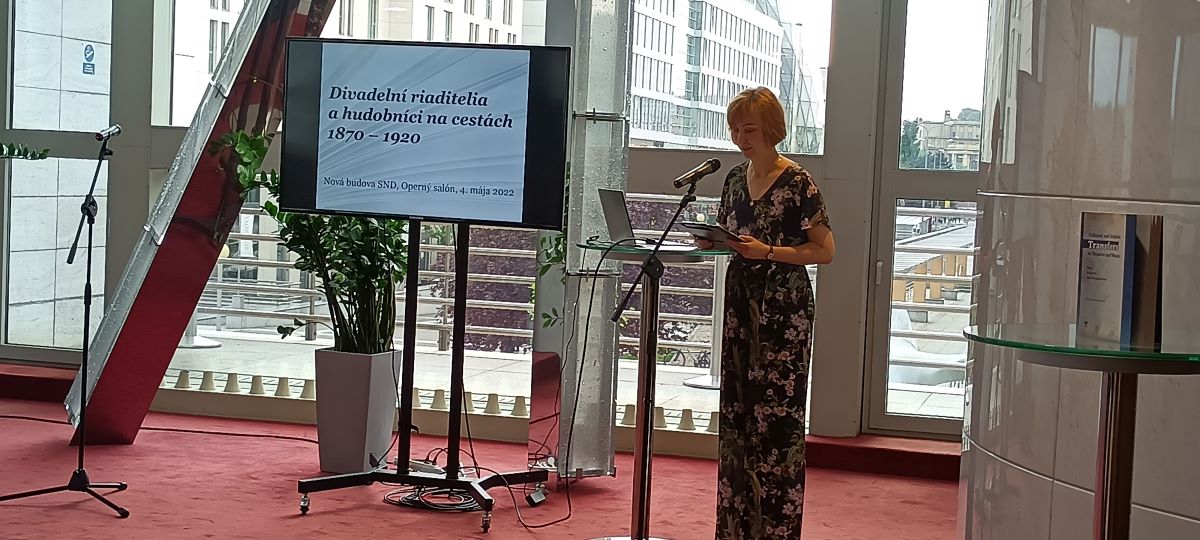
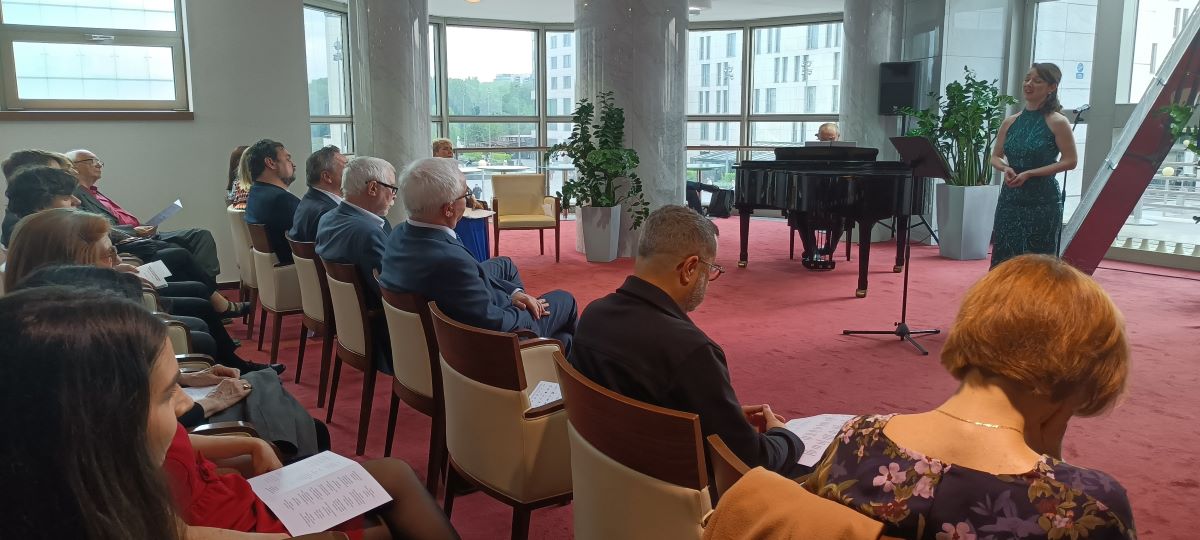
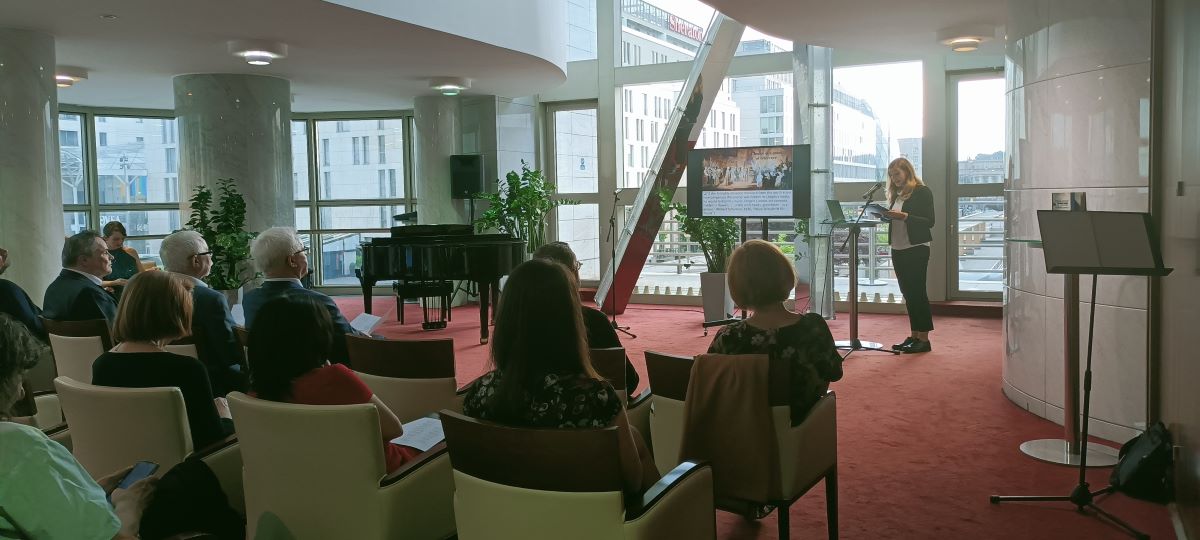
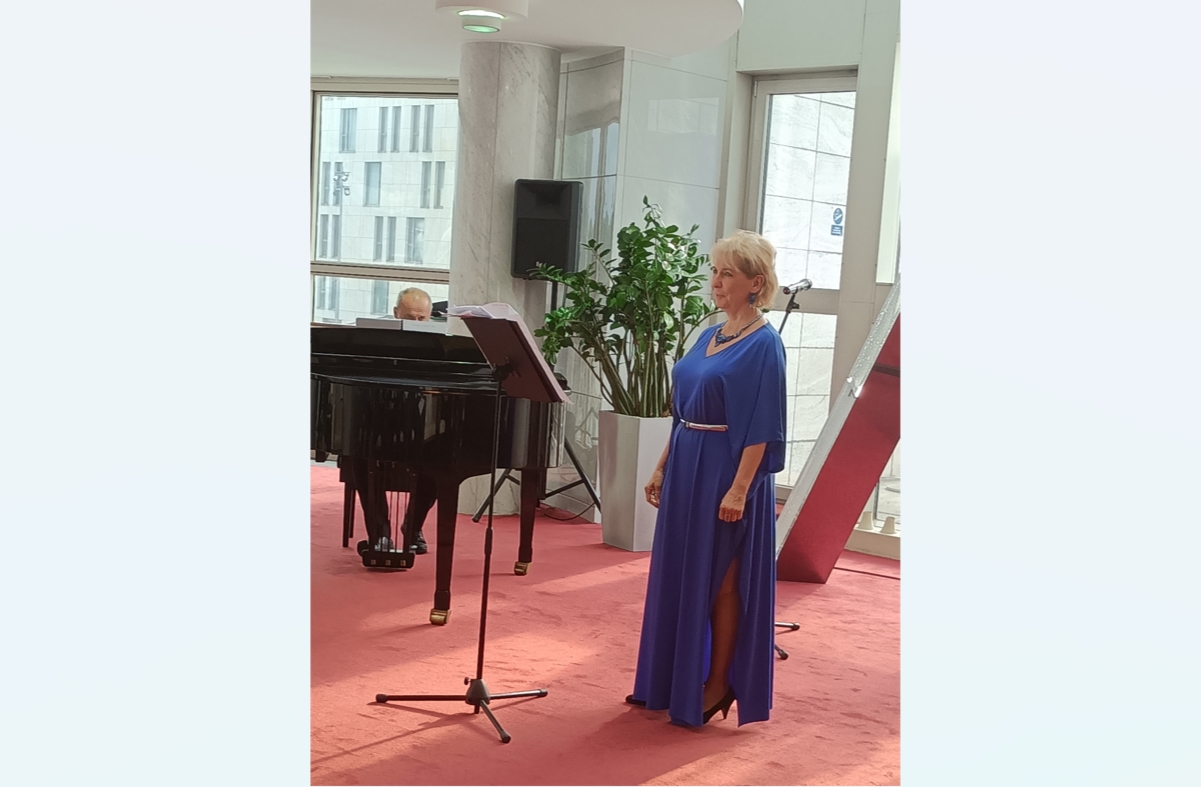
Photo: Klára Madunická, ÚDFV CVU SAV, v. v. i.
Lecture recital in Olomouc, Kaple Božího Těla
The first lecture recital of the Visegrad Grant project entitled Towards a common regional history of our nation building strategies. Traveling directors, musicians took place at the Božího Těla Chapel at the Palacký University Olomouc, on May 3, 2022 at 5 P.M. The repertoire of the lecture recital was performed by the Liszt Ferenc Prize winner soprano Ingrid Kertesi, and her current student in the Liszt Academy Budapest, the soprano singer Júlia Mária Kovács, with the participation of conductor Gergely Kaposi on the piano.
The concert was complemented by short introductory lectures held by experts explaining the selected repertoire illustrating the musical theatrical traditions of each V4 nation. For the lecture recital, the experts (Jana Laslavíková, Tomasz Pudłocki, Kim Katalin, Lenka Křupková and Jiří Kopecký) selected arias that were the most characteristic representatives of the nation-building traditions of each nation under study in some of the countries' musical theaters.
Download: Poster, Program notes, Invitation.
Project presentation in Olomouc, at Palacký University
The presentation of the Visegrad Grant project took place at the Palacký University Olomouc on May 3, 2022, starting at 15:30. The roundtable discussion for the PhD students of the Department with a project presentation was moderated by Jiří Kopecký. Representing Katalin Kim, Lili Veronika Békéssy, and Jana Laslavíková and Tomasz Pudłocki summarized the project’s past and former results, and the current objectives of the grant entitled Towards a common regional history of our nation building strategies. Traveling directors, musicians. After the discussion and presentation, a brief history of the arias for the lecture recital was also presented in an intercultural context, detailing why the selected repertoire played an important role in the V4 countries ’own nation-building strategies.
Lecture by Pál Horváth
On April 21, 2022, a concert was organized in the Ferencsik Hall of the Béla Bartók Music Secondary School in honour of Franz Doppler, who was born 200 years ago in 2021.
Pál Horváth gave a lecture at this concert within the framework of the Visegrad Grant project "Towards a common regional history of our nation building strategies. Traveling directors, musicians".
Franz Doppler was an important figure in the musical life of 19th-century Pest. He worked for two decades as a conductor, composer and flutist at the Pest National Theatre, before becoming a ballet conductor in Vienna.
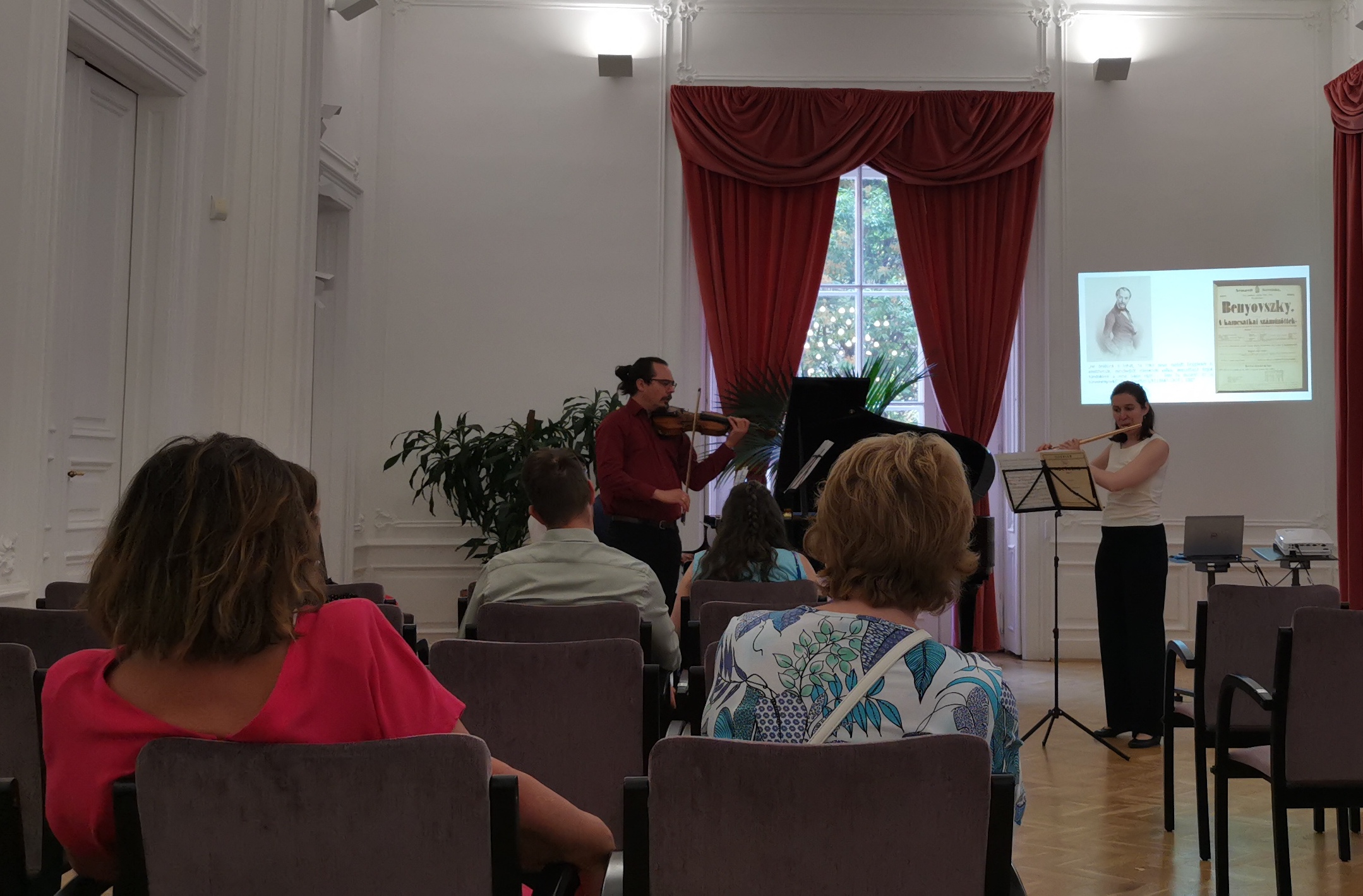
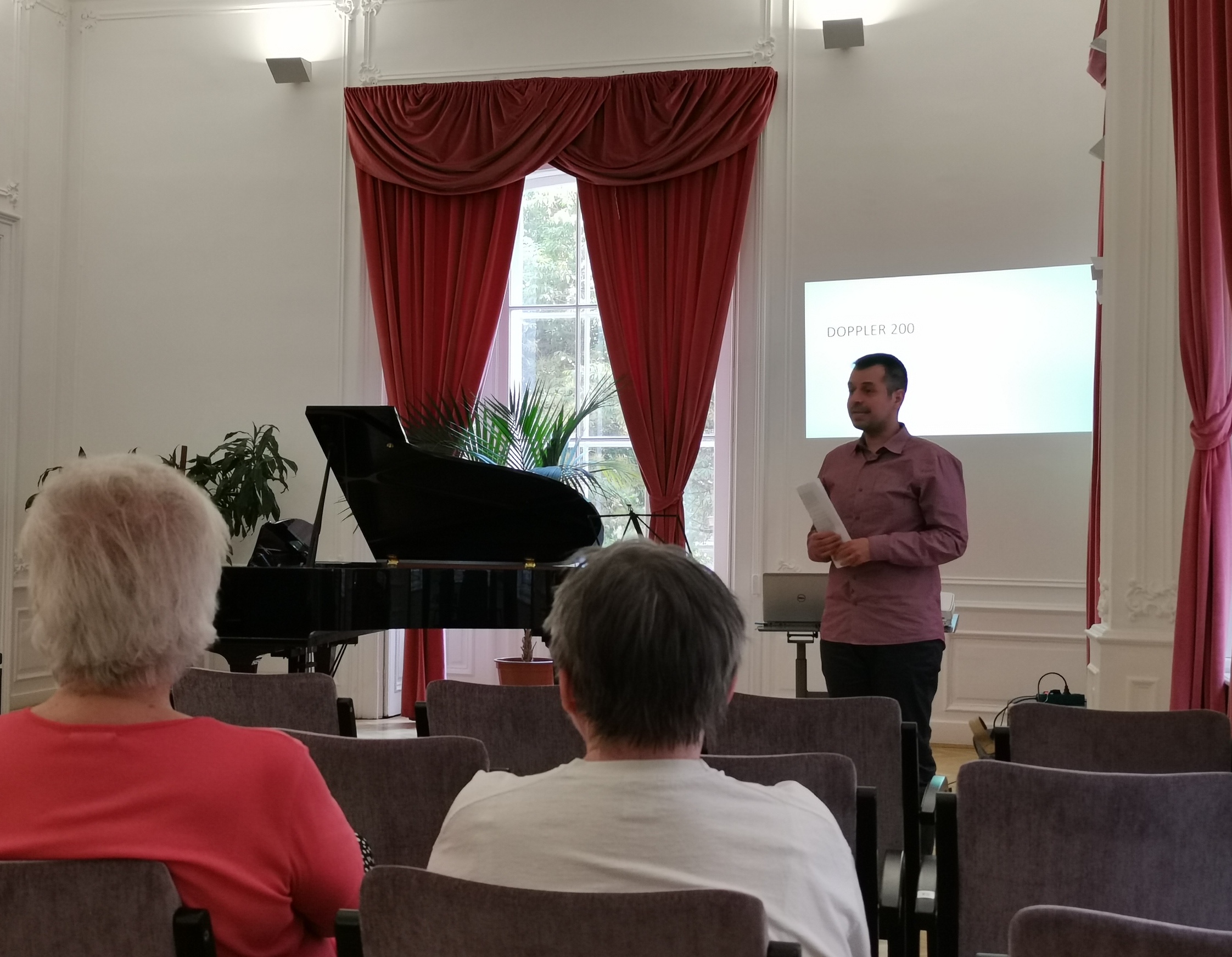
Three lectures by Emese Tóth
Emese Tóth, a member of our department, gave three guest lectures on music iconography and music history to the students of the Károli Gáspár University of the Reformed Church, MA in Netherlandistics, within the Music Culture and Literature course of the University. One of them was the lecture "The career of opera singer József Ellinger with Dutch aspects", which was held on 23 March 2022, concerning the topic of Visegrad Grants 2020-2022 Towards a common regional history of our nation building strategies. Traveling directors, musicians.
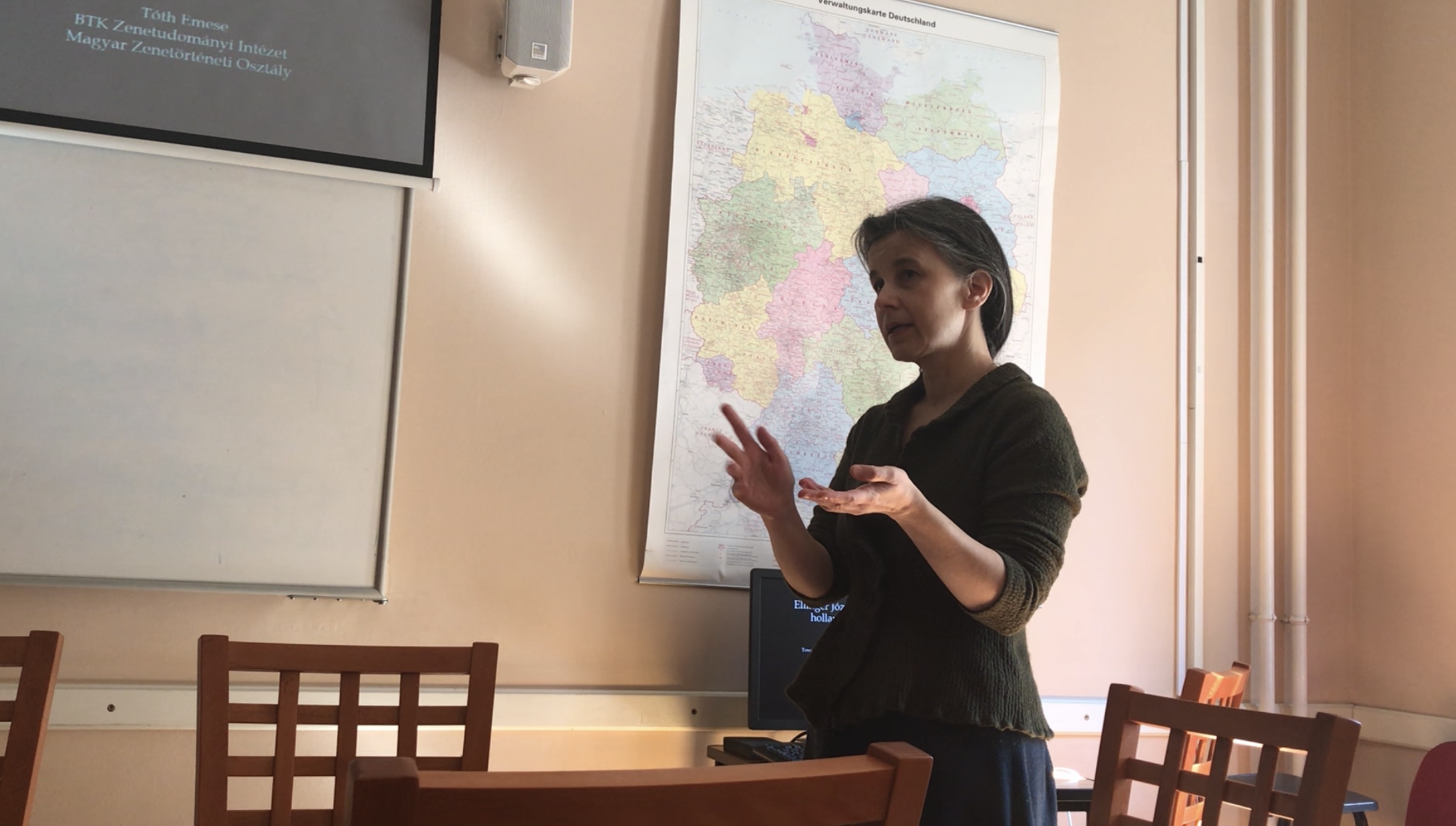
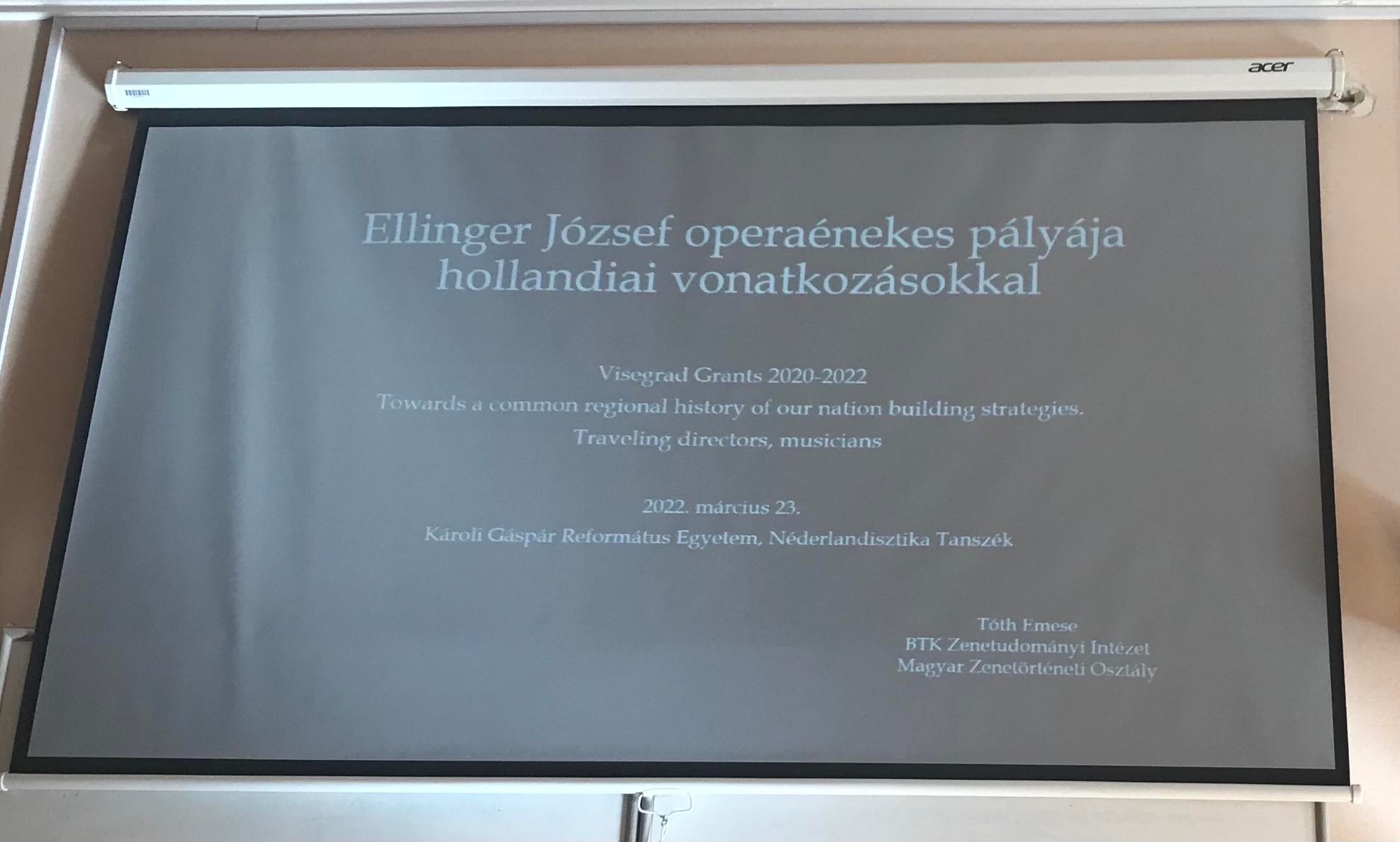
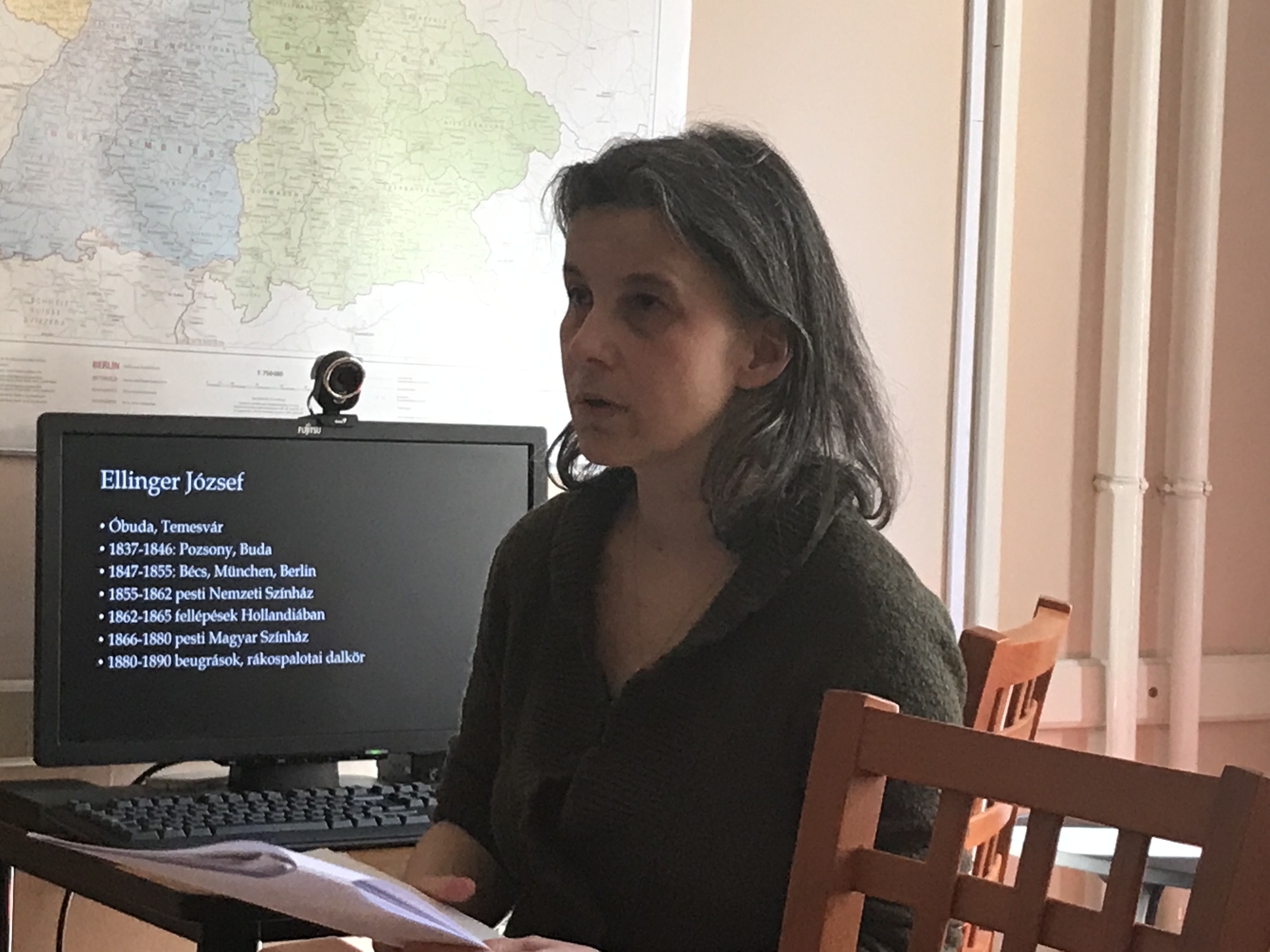
A theatrical sensation in Bratislava 120 years ago
In the March edition of the Rande s mestom (Date with the city) podcast, Ludwig Bagin hosted Jana Laslavíková, musicologist and researcher at the Institute of History of the Slovak Academy of Sciences. The topic of the conversation was the practical functioning of the City Theatre, a central institution of cultural life in the early 20th century, and a special event in the history of the theater. During the period, German and Hungarian performances alternated in the repertoire, with productions by local artists contrasting with stars from Viennese theatres.
However, exactly 120 years ago, at the time of the burgeoning Hungarianisation, a Slavic language - Czech - was first heard on the stage of this theatre during a guest performance by a Czech opera from Brno, literally stirring up the city.
Article about performer, dancer and choreographer Rudolf Laban
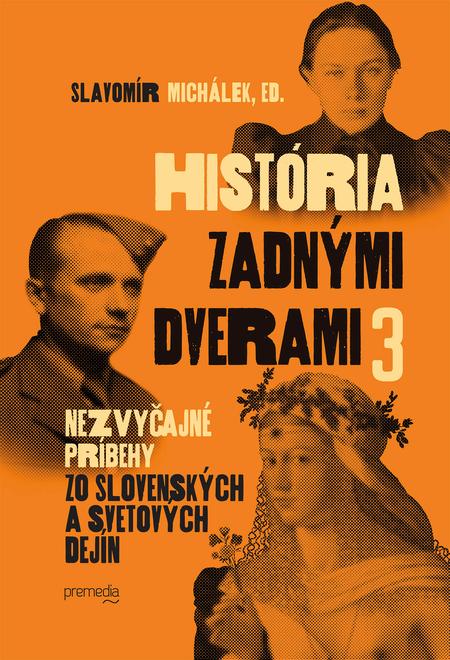 Jana Magdaléna Májeková: Vo víre tanca alebo ako sa sen stáva skutočnosťou: Cesta Rudolfa Labana z Prešporka na Vrch pravdy [In the Whirl of Dance or How a Dream Comes True: Thee journey of Rudolf Laban from Pressburg to the Mountain of Truth]. In Slavomír Michálek (ed.). História zadnými dverami 3 [History through the Back Door 3]. Bratislava: Premedia, 2021, s. 194-205.
Jana Magdaléna Májeková: Vo víre tanca alebo ako sa sen stáva skutočnosťou: Cesta Rudolfa Labana z Prešporka na Vrch pravdy [In the Whirl of Dance or How a Dream Comes True: Thee journey of Rudolf Laban from Pressburg to the Mountain of Truth]. In Slavomír Michálek (ed.). História zadnými dverami 3 [History through the Back Door 3]. Bratislava: Premedia, 2021, s. 194-205.
About the article:
Born in Pressburg (Bratislava), Rudolf Laban (1879–1958) was a pioneer of modern expressionist dance. He had been interested in dance since childhood, but in 1912, at the age of thirty-three, he devoted himself entirely to dance. This was unacceptable to his father, a prominent officer in the Austro-Hungarian army, who wanted Rudolf, his only son, to have a successful military career. An important part of Laban's beginnings as a professional dancer were his summer stays at the Mountain of Truth (Monte Verità) near the Swiss town of Ascona, where he regularly taught dancing. However, the community in which he worked was very specific and unconventional at the time. Its members sympathized with pacifism, vegetarianism, return to nature, abstinence and nudism. This article deals with these aspects – childhood, family background, the desire to dance and work in the community at the Mountain of Truth – in the life of Rudolf Laban.
Two lecture by Jiří Kopecký and Lenka Křupková
In autumn 2021, the Department of Musicology, Faculty of Arts, University of Olomouc held two lectures in the framework of the Visegrad Grant Project 2020-2021 - Towards a common regional history of our nation building strategies Travelling directors, musicians. The first event was a lecture by Jiří Kopecký, PhDr., Ph.D., doc. on 12 October 2021, entitled Proměny operního repertoáru v dlouhém 19. století (Changes of opera repertoire in the long 19th century). The second lecture - Obraz publika Městského divadla v Olomouci (The Image of the Audience of the Municipal Theatre in Olomouc) - on 25 October 2021, was given by Lenka Křupková, PhDr., Ph.D., doc. The content of the presentations was as follows:
Changes of opera repertoire in the long 19th century
On the example of the Olomouc opera scene, it is possible to demonstrate shifts in the opera repertoire, both in the general trends valid for the 19th century opera practice and by the specific conditions of the provincial theater. To a large extent, the opera repertoire was chosen according to the possibilities of the lead singers, especially the excellent prima donna managed to fill the auditorium of the theater throughout the whole season. Sopranos Lukatschy, Pollert and Lucca were such prominent personalities in Olomouc.
The Image of the Audience of the Municipal Theatre in Olomouc
The lecture tries to reconstruct the structure of the audience of the German municipal theatre in Olomouc. It focuses foremost on the period from the seventies of the 19th century until 1920 when the scene was handed over to the Czech administration. It is possible to reconstruct the stratification of the audience in the auditorium of the municipal theatre with the help of information in the contemporary local press, official records of the meetings of the municipal representatives and other documents stored in the Archives of the City of Olomouc, and to characterize its specifics, taste, national collocation and the dynamics of its transformation in the determined period of time.
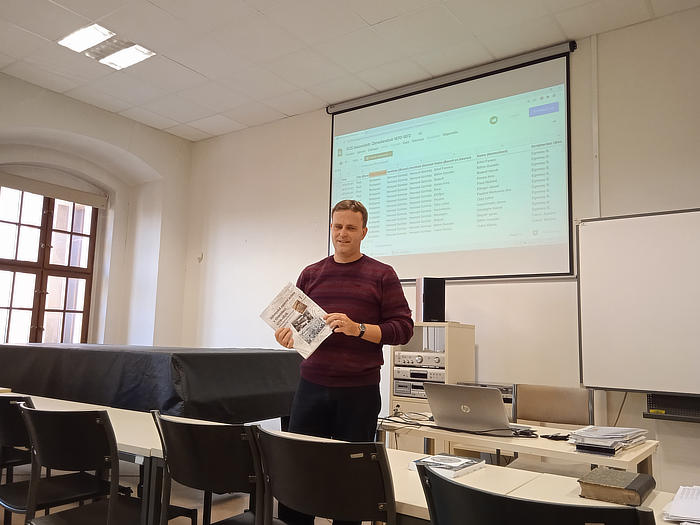
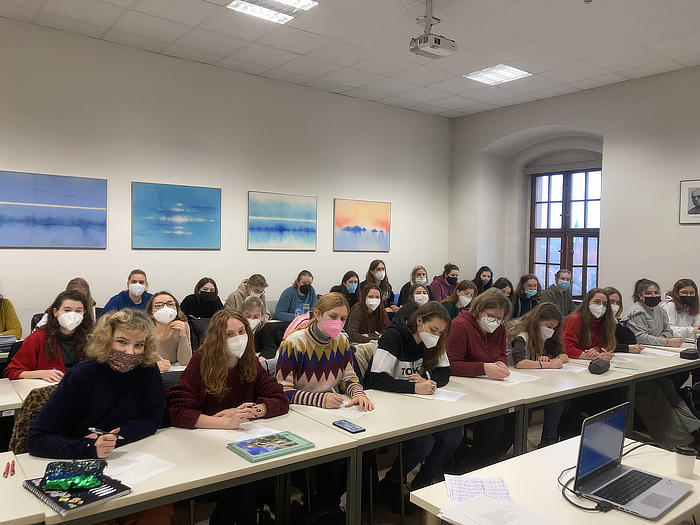
Conference papers themed on the V4 project
Department for Hungarian Music History of the Institute for Musicology, Research Centre for the Humanities and the Liszt Ferenc Museum and Research Centre of the Liszt Ferenc Academy of Music. Date 18–19 October 2021. Venue: Liszt Ferenc Museum and Research Centre.
At the conference entitled “The Relationship Between Liszt and his Hungarian Contemporaries in the Light of Hungarian Cultural History” several members of the Hungarian Music History Department, also participating in the Visegrad project, presented papers:
Katalin Kim: Erkel és Liszt. Adalékok a Hunyadi László külföldi előadásaihoz [Erkel and Liszt. New datas to the performances of László Hunyadi abroad]
Pál Horváth: Liszt látogatásai a pesti Nemzeti Színházban [Liszt's Visits to the National Theatre in Pest]
Lili Veronika Békéssy: „Vox populi.” Liszt Ferenc 1873-as művészi jubileuma ["Vox populi." Ferenc Liszt’s 's artistic jubilee in 1873]
Rudolf Gusztin: Liszt Ferenc és az 1865-ös pesti országos dalárünnepély [Rudolf Gusztin: Ferenc Liszt and the National Choral Festival in Pest in 1865]
Zsolt Vizinger: Liszt Ferenc és Pest-Buda kamarazenei élete [Ferenc Liszt and the chamber music life of Pest-Buda]
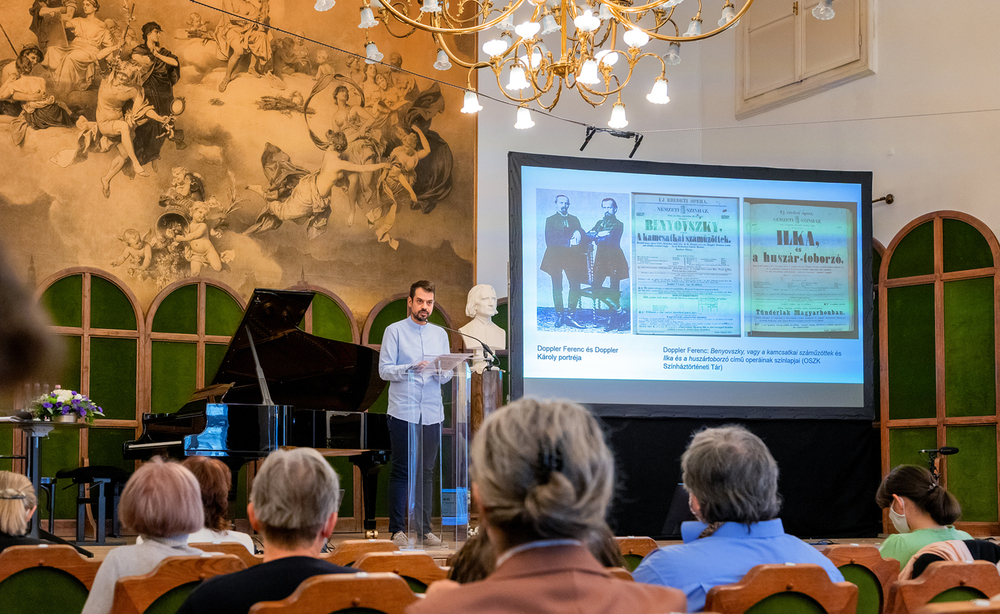
© Felvégi Andrea / Müpa
Conference papers themed on the V4 project
Conference presentations of our Visegrad project participants (Lili Békéssy, Rudolf Gusztin, Emese Tóth, Zsolt Vizinger). Conference papers themed on the V4 project. Symposium "Music criticism and dissemination". The 18th Scientific Conference of the Hungarian Musicological Society. Date: 8-9 October 2021. Venue: Venue: RCH Institute for Musicology, Budapest, Hungary.
Emese Tóth: Görbetükör vagy jószándékú kioktatás? Ellinger József operaénekes a korabeli sajtóban [A curved mirror or a well-meaning lecture? Opera singer József Ellinger in the contemporary press]
Rudolf Gusztin: Fővárosi dalegyletek a korabeli sajtó tükrében (1843–1867) [Capital city choir societies in the light of the contemporary press (1843-1867)]
Lili Veronika Békéssy: Kulturális „jogkiterjesztés” és nemzeti indoktrináció. Koncerthirdetések az 1850-es évek pest-budai sajtójában [Cultural "extension of rights" and national indoctrination. Concert advertisements in the Pest-Buda press of the 1850s]
Zsolt Vizinger: „A quartett, e nem magyar műfaj” honosítási stratégiái és a sajtó válasza a 19. század utolsó harmadában ["Strategies of the naturalisation of the quartet, this non-Hungarian genre" and the response of the press in the last third of the 19th century]
Lecture and quiz for students at the Beethoven in Hungary exhibition
The Department for Hungarian Music History of the Institute for Musicology contributed to this year’s Festival of Hungarian Science (MTÜ) series of events organized by the Hungarian Academy of Sciences with a lecture and an optional quiz game. On 10 November 2021, staff members of the Department – Katalin Kim, Lili Békéssy, Pál Horváth, and Zsolt Vizinger – presented to a group of students of the Liszt Ferenc Academy of Music Bartók Béla Secondary School of Music, Instrument Making and Repair, the exhibition, entitled “music has come to the limits of expression” – Beethoven in Hungary celebrating the 250th anniversary of the composer’s birth, focusing on Beethoven’s Hungarian connections and reception in Hungary, including the Hungarian operatic industry, the symphonic and chamber music, and the artistic patronage activity of the Hungarian nobility. The festive events held in 1870, the centenary of the composer’s birth, also provided an opportunity to explore the international Beethoven cult. Following the lecture, the secondary school students had the opportunity to take part in an interactive quiz game based on the lecture and the exhibition material; with a relaxed atmosphere created by a series of crosswords and a style exercise that challenged the creativity of the participants. Gabriella Murvai-Bőke and Emese Tóth took part in compiling the questions for the competition. The afternoon was moderated by Rudolf Gusztin.
Lecture by Jana Laslavíková in Prague
On Thursday, 30 September, Jana Laslavíková gave a lecture entitled "The Municipal Theatre of Prešpork at the end of the 19th century. Between Province and Metropolis", organised by the Theatre Society and the Czech Theatre Studies Cabinet.
Laslavíková has recently published a monograph on musical theatre in Bratislava entitled Mestské divadlo v Prešporku na sklonku 19. storočia. Medzi provinciou a metropolou (The Municipal Theatre in Pressburg at the end of the 19th century. Between Province and Metropolis). Among the most famous theatre architects within the Austro-Hungarian monarchy were F. Fellner Jr. and H. Helmer. They designed almost fifty theatres, including the Municipal Theatre in Pressburg, known at the time of its foundation as the Városi Színház/Stadttheater (today the HB SND in Bratislava). The new publication shares a complete list of performances in German from 1886-1899, provides the first complete overview of its history, including details of its artistic and technical operation. Despite the intensive Hungarianization of the city of Pressburg since the opening of the Municipal Theatre, the city decided to divide the season into German and Hungarian sections with respective directors and companies, which creates room for questions about the function of theatre in a multiethnic city in a given space and time.
Jana Laslavíková, Ph.D., graduated in musicology at the FIF University of Music in Bratislava and the University of Vienna. She works at the Historical Institute of the Slovak Academy of Sciences, where she researches the theatrical life in Pressburg in the 18th and 19th centuries in the context of cultural, social and historical transformations of the city.
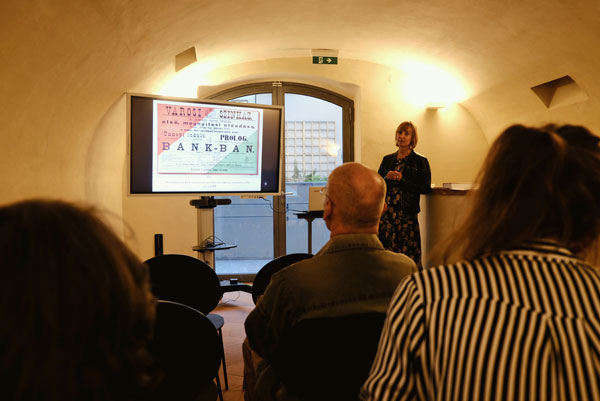
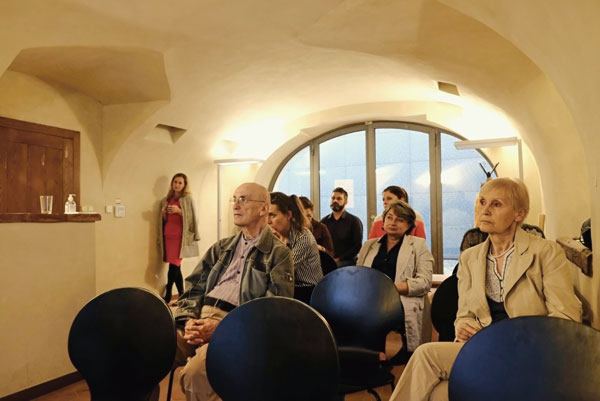
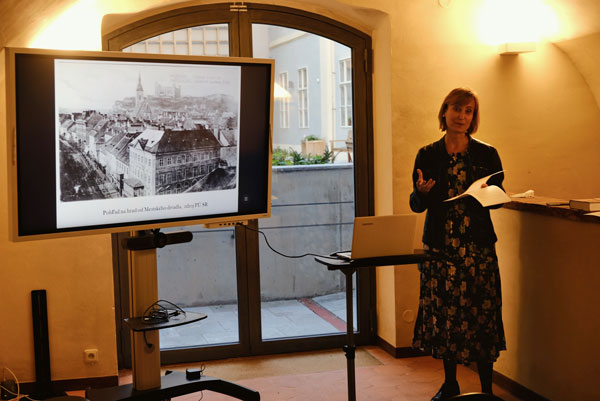
Tomasz Pudłocki's lectures
Professor Tomasz Pudłocki held four lectures at I Liceum Ogólnokształcące im. Króla Władysława Jagiełły w Dębicy (Dębica), at II Liceum Ogólnokształcące im. col. Leopolda Lis-Kula (Rzeszów), at V Liceum Ogólnokształcące im. Augusta Witkowskiego w Krakowie and at Liceum Ogólnokształcącego im. J. Słowackiego. The lectures were devoted to the role of artists in the life of nineteenth-century nations and their influence on independence aspirations and the sense of national identity.
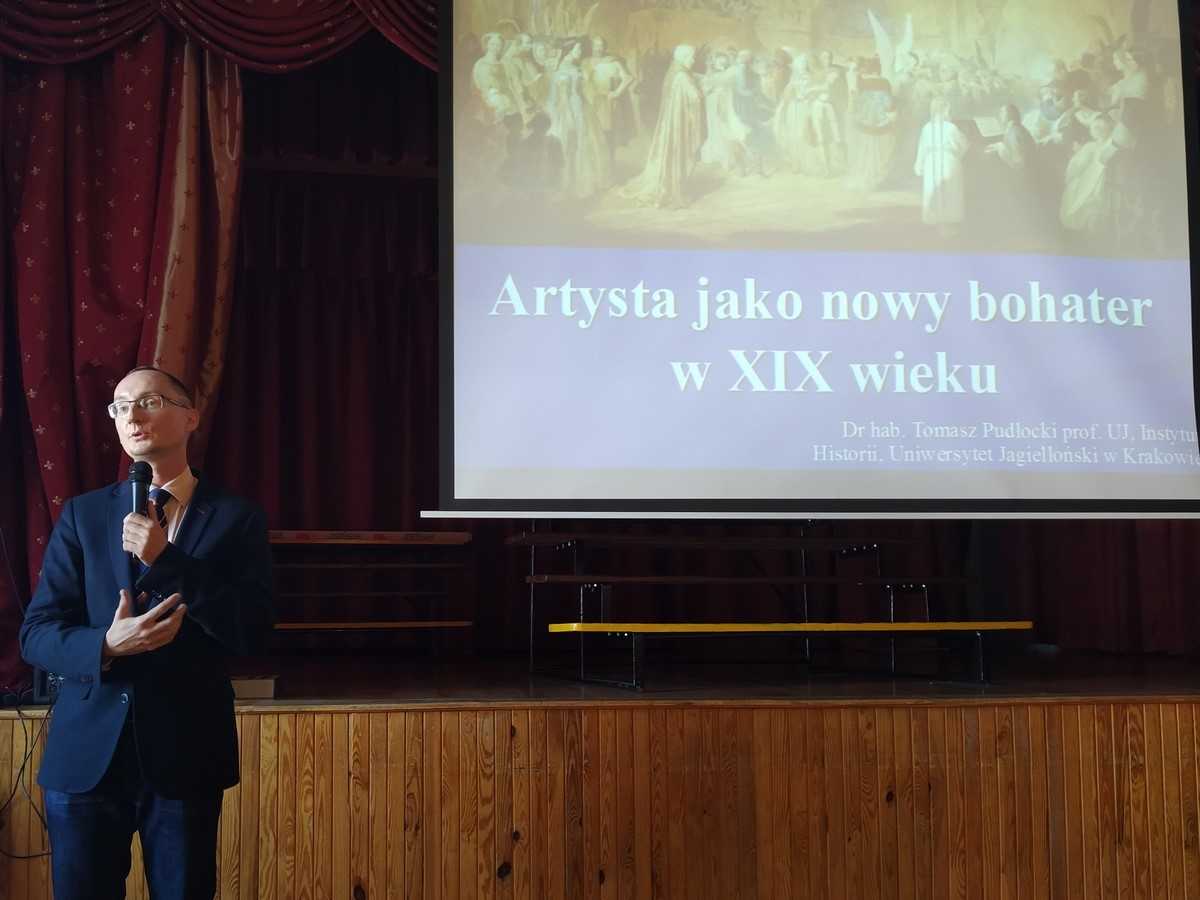
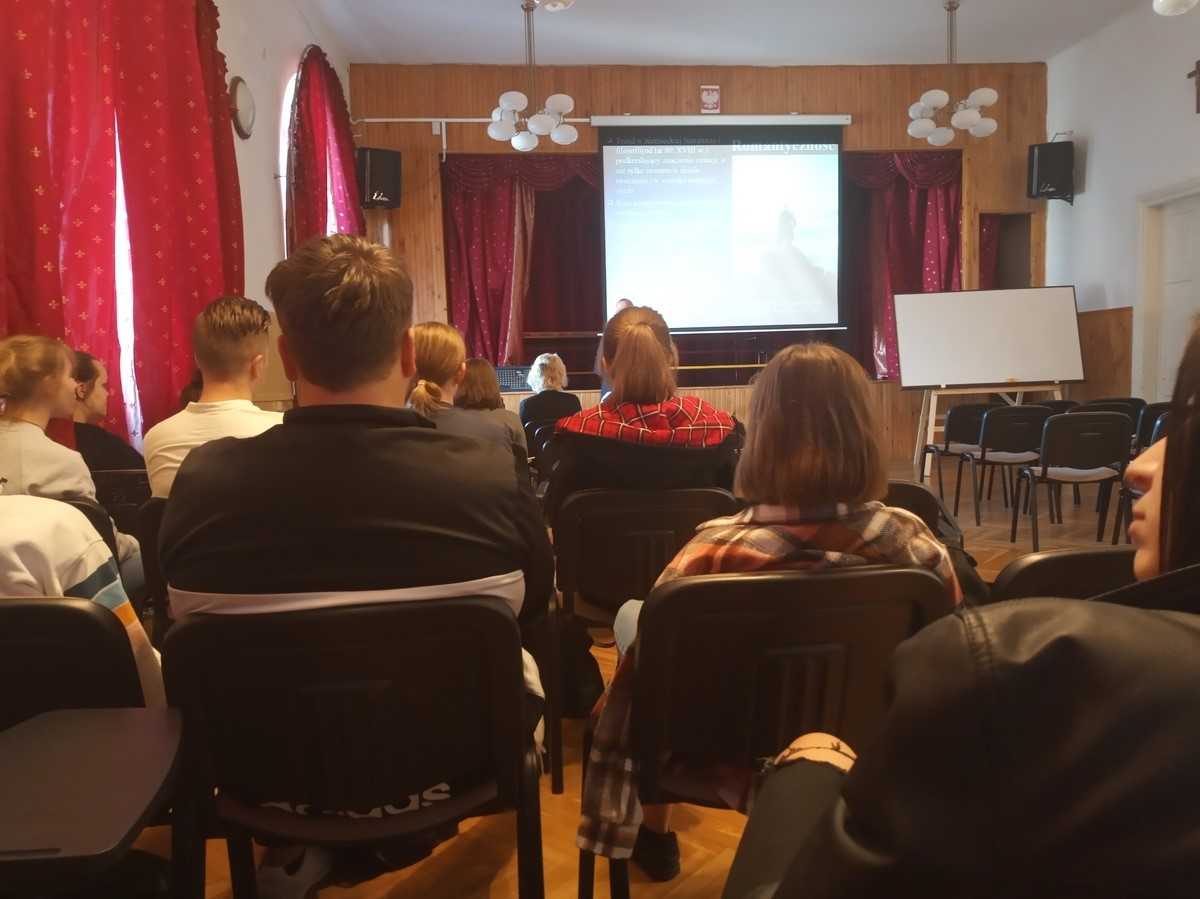
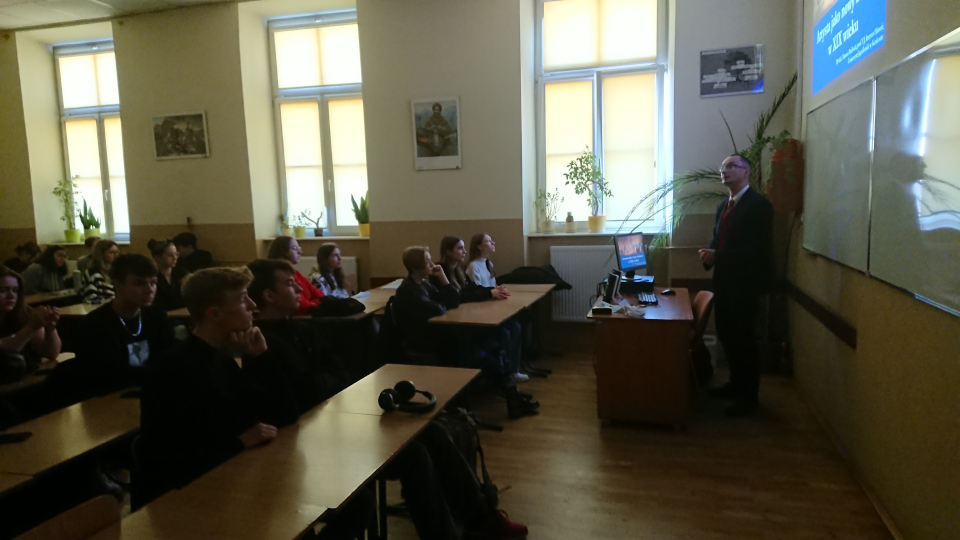
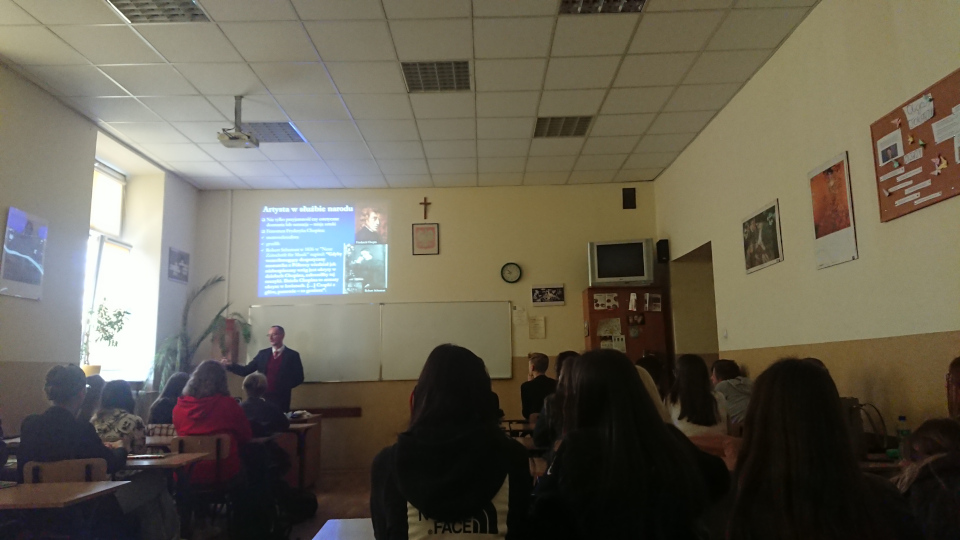
Publication about Cultural Transfer in Music Theater
In October the Art Research Centre of the Slovak Academy of Sciences Institute of Theatre and Film Research published a book edited by Michaela Mojžišová, entitled Cultural and Artistic Transfers in Theatre and Music: Past, Present, and Perspectives.
From the editorial note:
This journal, the work of thirteen musicologists and theatrologists from research institutes and universities, focuses on cultural and artistic transfers in art music and theatre in Central Europe. The contributions of the authors, who have already collaborated as team members in the Poetics of Contemporary Performance Art (VEGA 2/ 0110/19) and Towards a Common Regional History of Our Nation Building Strategies. Traveling Directors, Musicians (Visegrad Grants 2020 – 2021) projects, deal with the topic not only with regard to history and the present, but also in terms of future perspectives. They bring information on the role and status of music and theatre art and ponder over their possibilities in the open cultural environment of the twenty-first century. Cultural transfer/cultural exchange thus highlight the cultural conjunctions,
as well as differences, in regions which used to be homogeneous. The first thematic unit of the journal focuses on the period of the nineteenth century and the early twentieth century up to 1918 when musical theatre in Austria and, later, in Austria-Hungary, fulfilled a representative role in the bourgeois society.
The volume publishes the draft papers of the V4 group members – Jana Laslavíková, Lenka Křupková, Jiří Kopecký, Tomasz Pudłocki –, and invited speakers – Tatjana Marković and Cristina Scuderi) that were to be presented at the conference organised for September 2020 to celebrate the 100th anniversary of the opening of the Slovak National Theatre, but cancelled due to the pandemic.
Jana Laslavíková: Benefit Performances in the Municipal Theatre in Pressburg as an Example of Cultural Transfer in Musical Theatre in the Late Nineteenth Century
Cristina Scuderi: When Singers Come from the Sea. Some Remarks on Coastal Theatres and Their Management
Tomasz Pudłocki: Entertainment or National Duty? The Role of Music in the Life of Eastern Galician Provincial Towns 1867 – 1914
Tatjana Marković: Networks of Cultural Zones between Imperial Theatre Houses. Migrations of Two Serbian Musicians
Jiří Kopecký: Czech Opera Competitions and Their Effect on the Czech (and Slovak) National Theatre
Lenka Křupková: From Prague to Vienna via Bratislava. Reflecting on Novák‘s Operas The Zvíkov Imp and The Lanter
Jana Laslavíková's Book and an Interview
On Monday, 28 June 2021, the presentation of Jana Laslavíková's book entitled Mestské divadlo v Prešporku na sklonku 19. storočia s podtitulom Medzi provinciou a metropolou. (The Municipal Theatre of Prešpork at the End of the 19th Century, subtitled Between Province and Metropolis), took place in the garden of the Albrecht House in Bratislava. The publication, which deals with the history of the theatre building from 1886 to 1899, has been nominated for the 2020 Prize of the Slovak Academy of Sciences – reported operaslovakia.sk.
Co-authored by the Department of Musicology at the Faculty of Humanities of Comenius University in Bratislava, the book, produced by the Music Centre and the Institute of History of the Slovak Academy of Sciences, sheds light on the establishment and early years of the Municipal Theatre of Prešpork (since 1920 the seat of the Slovak National Theatre) and presents previously unknown data on the theatre's operation between 1886 and 1899, when two directors, Max Kmentt and Emanuel Raul, worked in Prešpork.
To mark the publication of the book, the musicologist was interviewed in a podcast by one of Slovakia's leading newspapers, SME. The interview, conducted by Jaroslav Valent, can be heard on the SME website.
Jana Laslavíková's lecture
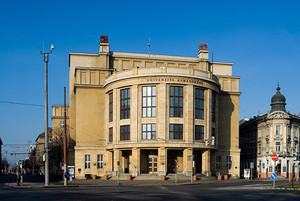 On 9 April, Jana Laslavíková gave a lecture for the doctoral and musicological students of the Comenius Universität.
On 9 April, Jana Laslavíková gave a lecture for the doctoral and musicological students of the Comenius Universität.
The lecture entitled Je dokonané! Nádherné dielo, nová ozdoba nášho krásneho starobylého korunovačného mesta je dokončená! Konštruovanie identity mestských elít na príklade Mestského divadla v Prešporku [Constructing the identity of city elites on the example of the City Theater in Prešporek.].
Jana Laslavíková's lecture
Jana Laslavíková gave an online lecture at Universität für Musik und Darstellende Kunst "Music Culture/s in Central Europe. Lectures and Discussions" event in Vienna on March 18, 2021.
Laslavíková presented her new monograph (Mestské divadlo v Prešporku na sklonku 19. storočia), she highlighted the importance of Bratislava's city theatre [Városi Színház] towards the end of the 19th century, especially as to forming the identity of the city's cultural elite.
The lecture's ("Vollendet! Das prächtige Werk, die neue Zierde unserer schönen altehrwürdigen Krönungsstadt ist vollendet!" Identitätskonstruktionen der städtischen Elite am Beispiel des Stadttheaters in Pressburg) abstract available here.
Jana Laslavíková's lecture
On Tuesday, 29 May 2018, dr. Jana Laslavíková, a member of our V4 project and an expert on theatre at the turn of the 19th and 20th centuries, gave a lecture. The event was highly praised by the Hungarian-language Bratislava cultural magazine Pozsonyi Kifli. The theme of the presentation was the history of the old building of the Slovak National Theatre, which was leased by the directors from the city as owner after its opening in 1886.


